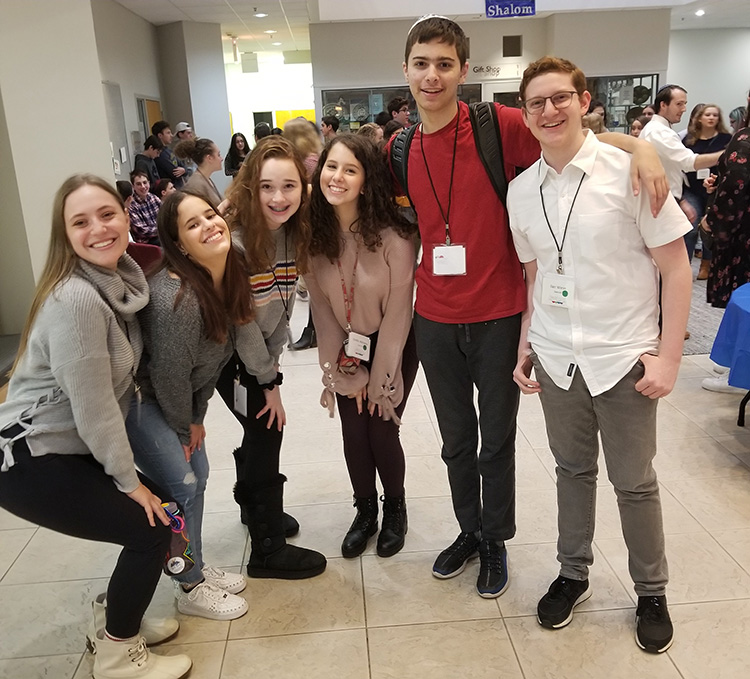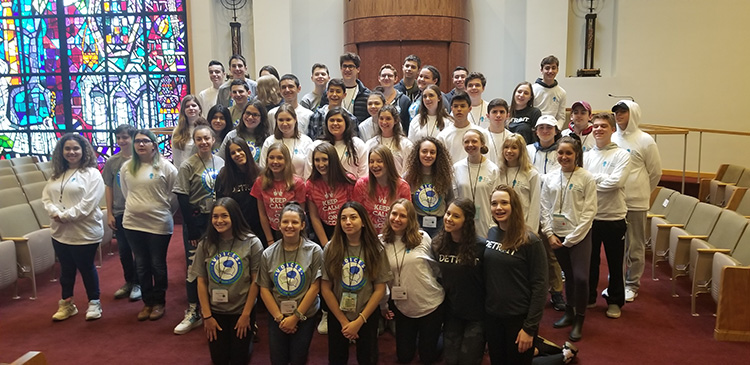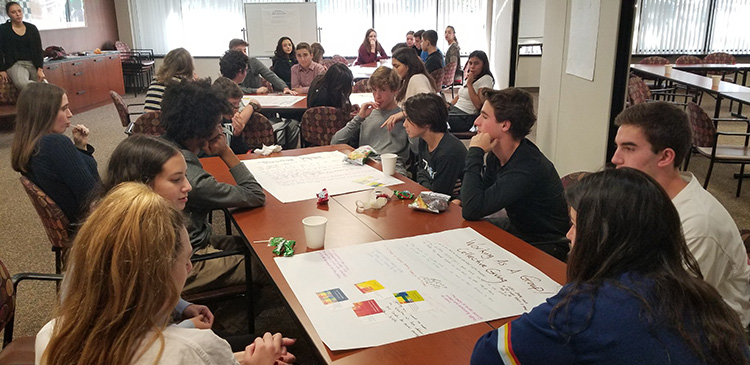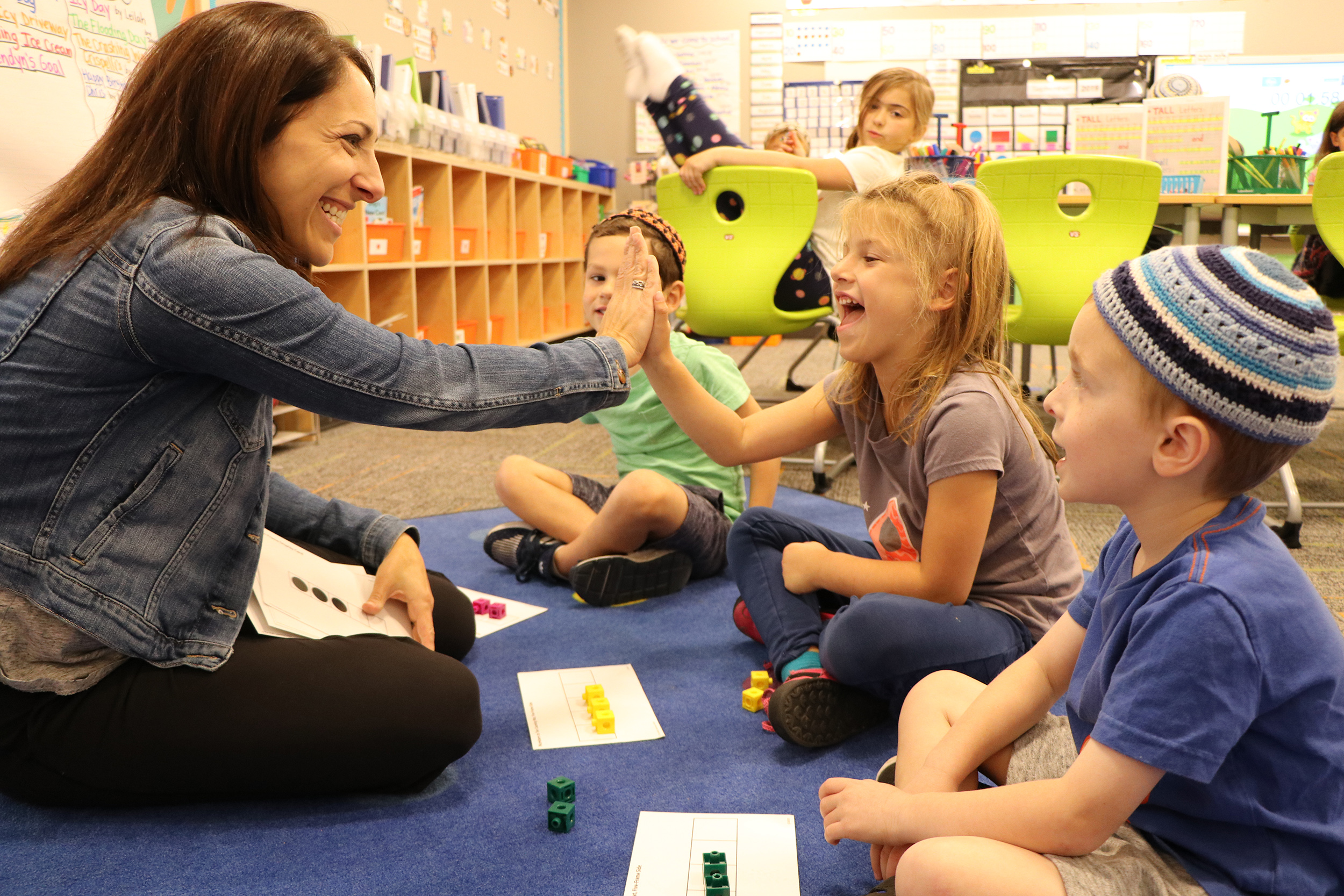
2020 Annual Report
The Jewish Fund
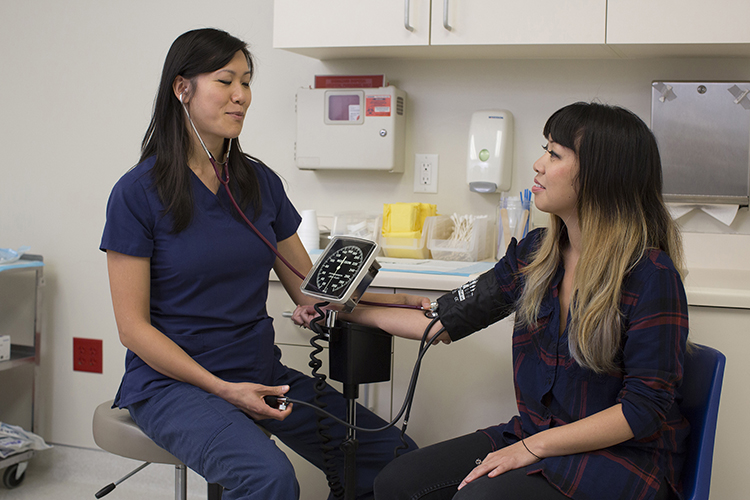
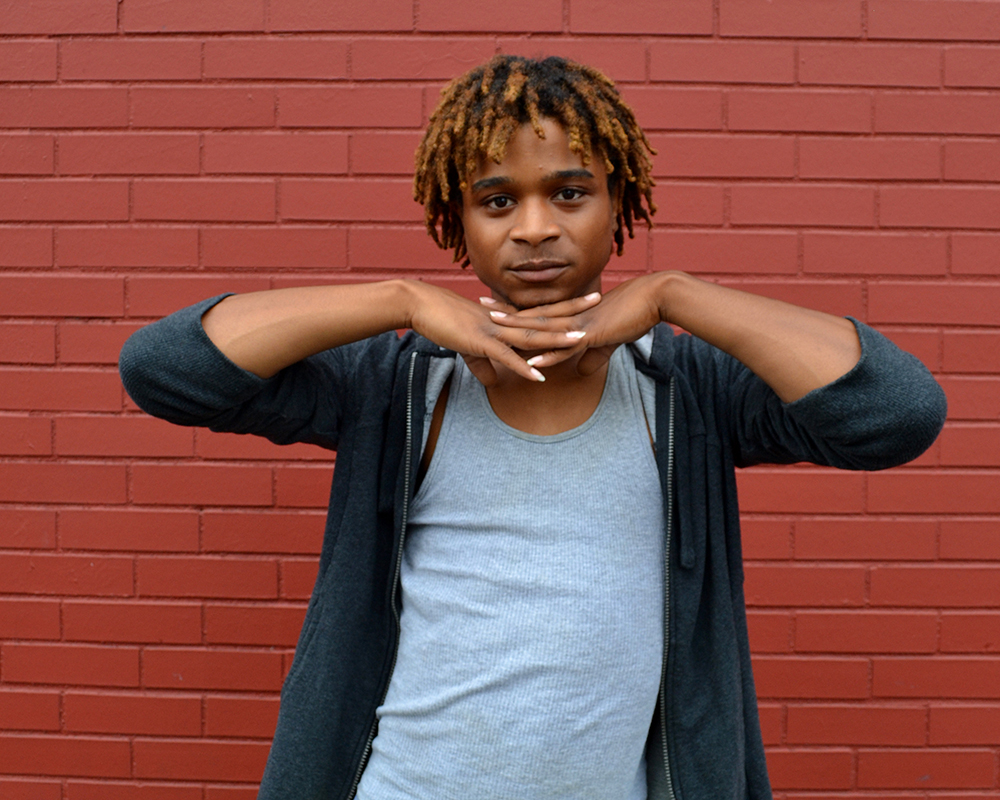
Sosnick Award
And the 2020 Robert Sosnick Award of Excellence recipient is…
Read More About the Sosnick Award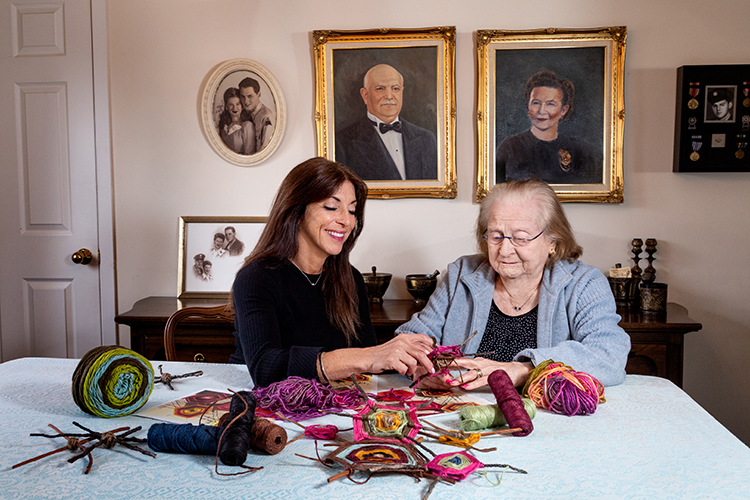
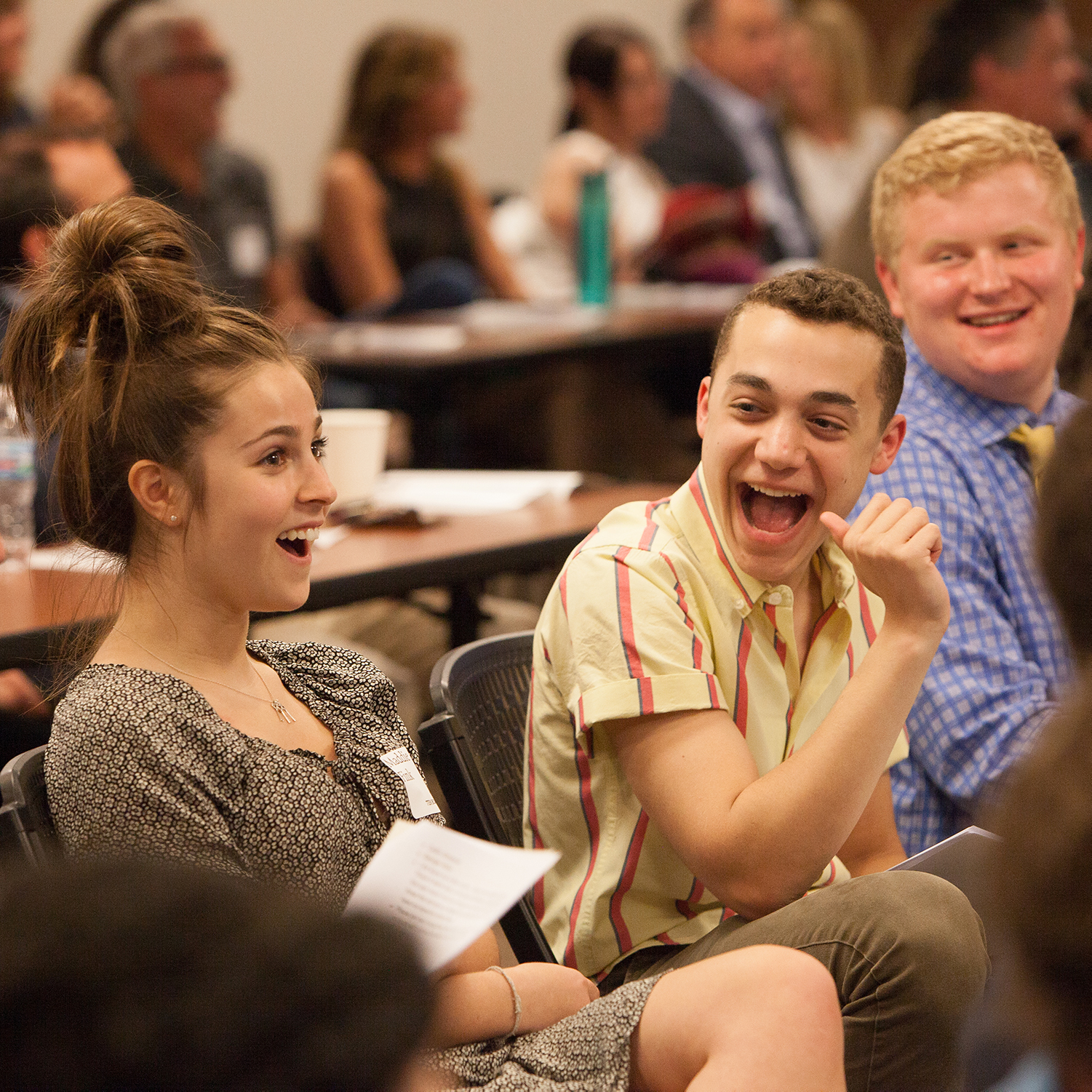
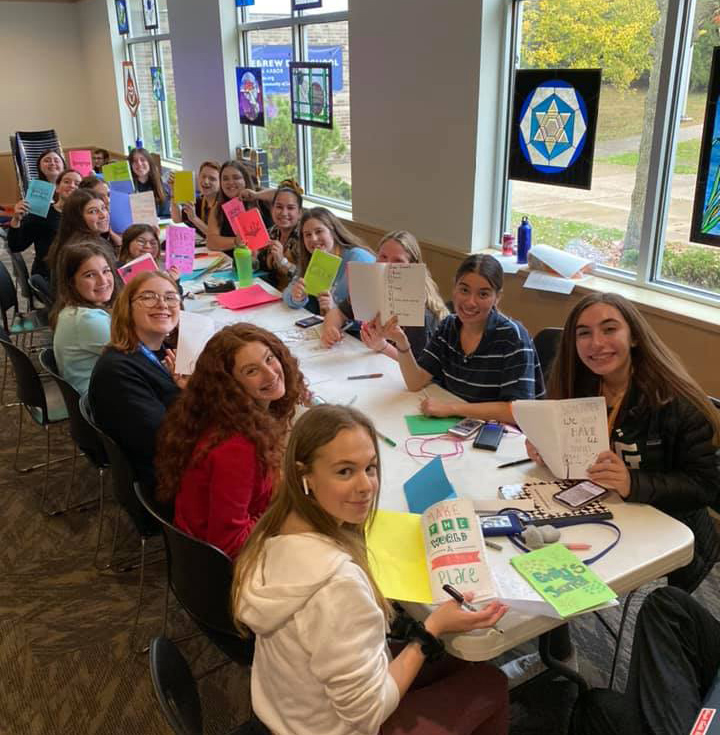
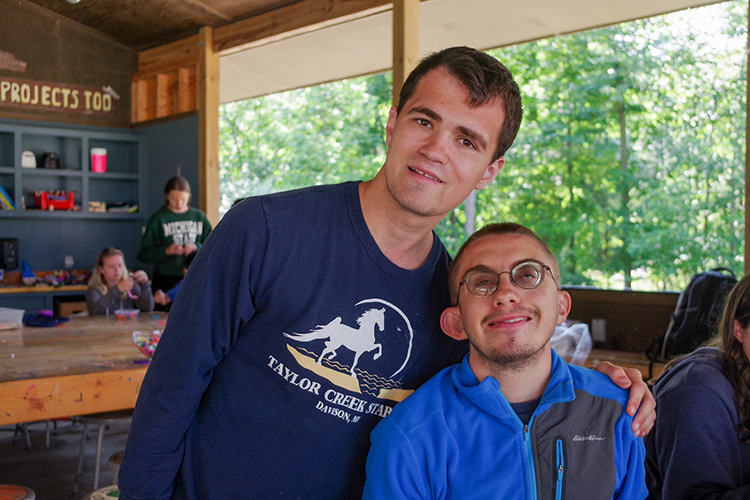
Board Members and Staff
Meet Our PeopleLetter from the Board Chair
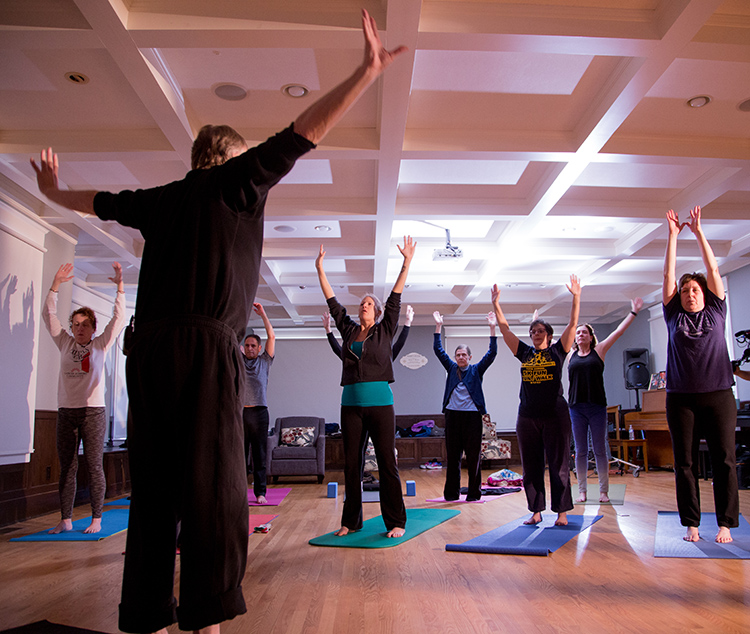
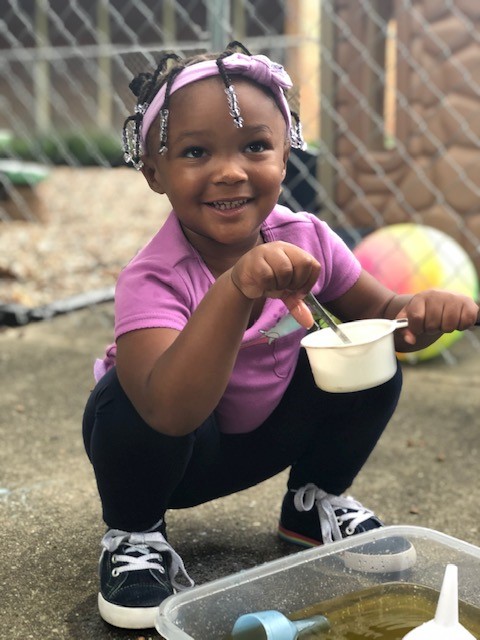
As I write this message, our community is in a state of uncertainty. While we have emerged from the initial months of the COVID-19 crisis, we simply do not know what awaits in terms of new surges in the virus, continued economic impacts and the resulting effects on non-profit service organizations community businesses, schools, etc.
Since March, we learned that even in the face of dramatic and unforeseen circumstances, staff, board members, donors and constituents persevered. The commitment by nonprofits to help people through this crisis has been inspiring. The teamwork, partnerships, hard work and creativity demonstrated led to virtually uninterrupted operations for the majority of our partners, and so many people have learned new ways to apply their skills while safely delivering needed services.
As I complete my final term as The Jewish Fund’s Chair and reflect on my 6 years as Chair and Vice Chair, I find I have been impressed with the strong organizational structures and practices of The Jewish Fund. While we have been nimble and responsive, leading us to be both effective and efficient, this past year was an eye-opening experience. Through numerous discussions among our board members and professional leadership, we completely changed course when the pandemic’s impact was evident.
Our priority was to use our funds to help those organizations that provide fundamental and basic needs to our community residents, focusing on health and welfare. We deferred the grant review process that was underway and funded a range of urgent needs. Direct discussions with nonprofit leaders helped us understand the situations facing our partners as they transitioned services to alternative methods of operation.
Our board, known for its strong engagement and participation with our grantmaking process, determined that they wanted to learn as much as possible about the effects of COVID-19 on our community. Board members gathered virtually to learn about the pandemic’s impact on Detroit area families through a virtual workshop they put together. We will continue to increase our understanding throughout the coming year with additional workshops. We also hope to be reinstating our in-person site visits as soon as it is safe to do so.
The Jewish Fund is here to help as we all develop newly imagined ways to serve our community. We envision supporting these re-imagined efforts to create thriving organizations and partnerships as the community pushes forward, recovers, and ultimately, comes out stronger.
We look forward to hearing your ideas and suggestions in the coming months. We are also grateful to our community and grant partners for the opportunity to join with you to improve the lives of residents of Metropolitan Detroit.
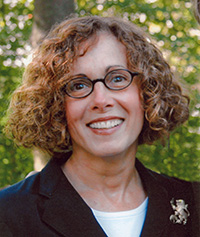

- Nancy Grosfield, Chair
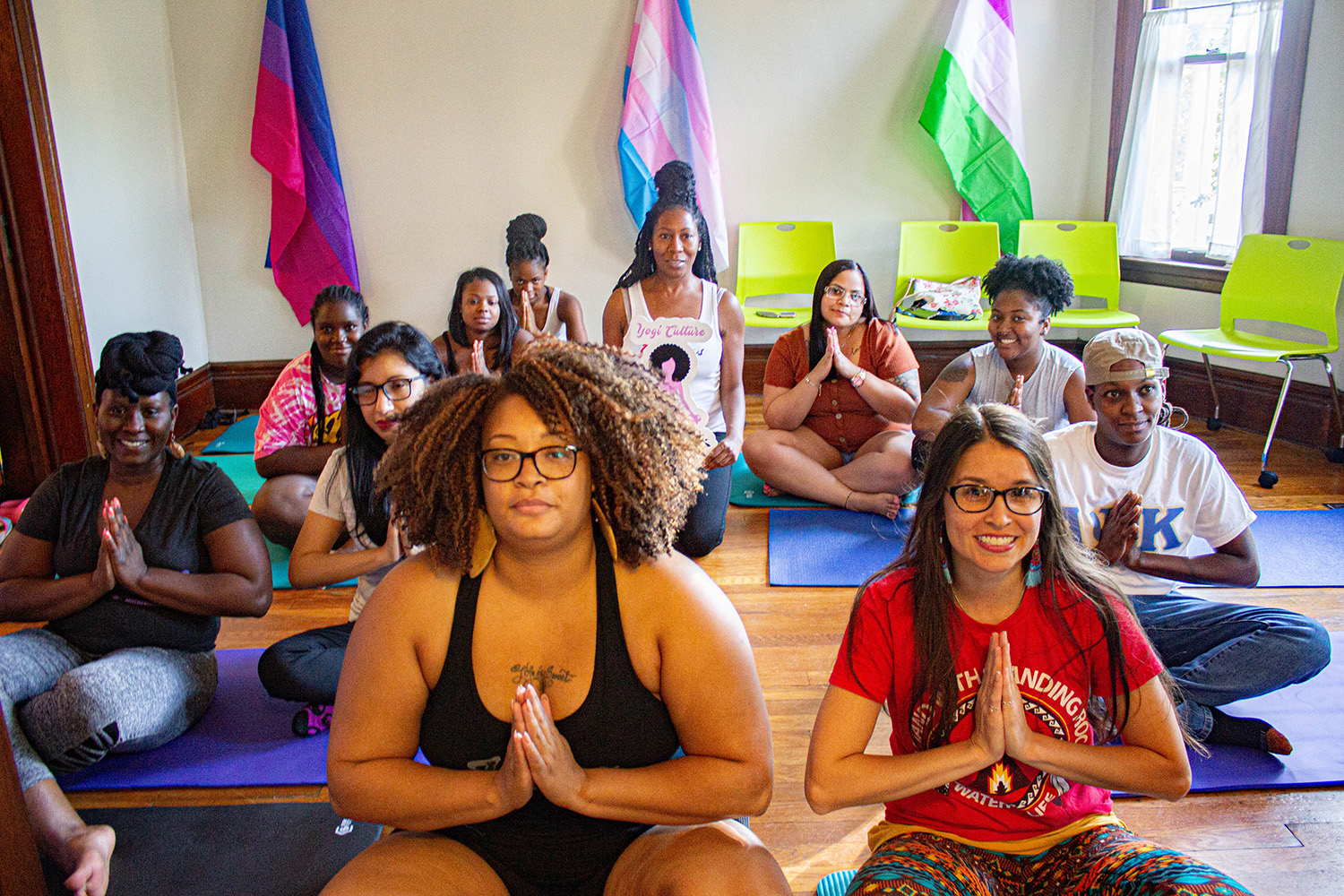
Ruth Ellis Center
2020 Sosnick Award Recipient
Sosnick Award
The Robert Sosnick Award of Excellence was established in memory of Robert Sosnick, whose bold vision and leadership skills led to the creation of The Jewish Fund. In tribute to Mr. Sosnick and in keeping with the mission of The Jewish Fund, the program selected for the award should represent the ideals and standards of excellence that are both hallmarks of this award and characteristics of Robert Sosnick. Innovation, collaboration, achievement of program objectives, impact on quality of life, management of resources and sustainability are all key criteria for a program’s selection of this annual award which includes a $25,000 prize.
The Ruth Ellis Center (REC) was established in 1999 to provide a unique array of services supporting underserved and high-risk populations of primarily homeless and runaway lesbian, gay, bi-attractional, transgender and questioning youth in metropolitan Detroit/Wayne County. Over the years, its scope of services has expanded to include +support services, primary care and specialized testing, peer support groups, positive youth development programming and mental health services. It has recently launched a social support program for women who identify as queer. The REC has been an organization that has truly evolved over the years, assessing the needs of its primary population to be served, and creating valuable partnerships with institutions best positioned to advance the health and well-being of the LGBTQ+ community, particularly those with poor support systems.
It is estimated that 1,000 homeless and runaway LGBTQ+ youth reside in metropolitan Detroit and the REC serves at least half of them. The REC has established a national reputation for quality and innovation in providing trauma-informed services for this population. The young people served are frequently experiencing homelessness, involved in the child welfare system and/or experiencing barriers to health and well-being. Its key areas of service are the Health and Wellness Center, offered in partnership with Henry Ford Health Center, its Drop-in Center, Kofi House, which is the Center for Lesbian and Queer women and Girls, and the Ruth Ellis Institute, focusing on education and evaluation. The Jewish Fund has supported the REC through several programs: Street Outreach, Health Care Navigation, Family Preservation (the subject of a 2015 Teen Board grant), and most recently, its Kofi House. These grants have totaled $115,000.
The Jewish Fund is so proud to partner with Ruth Ellis Center as it strives to provide a supportive environment and community with LGBTQ+ young people in our community.
Past Recipients
- 2019 Tamarack Camps’ Special Needs Inclusion Program
- 2018 St. Joseph Mercy Oakland – Mercy Dental Center
- 2017 Hamtramck School-Based Health Center in partnership with Children’s Hospital of Michigan Foundation
- 2016 Starfish Family Services
- 2015 Hebrew Free Loan
- 2014 Isaac Agree Downtown Synagogue
- 2013 Fair Food Network
- 2012 Forgotten Harvest
- 2011 Kadima
- 2010 Summer in the City
- 2009 JARC
- 2008 Jewish Senior Life/JVS
- 2007 Jewish Family Service
- 2006 Jewish Community Center
- 2005 City Year Detroit
- 2004 Children’s Dental Health Foundation
- 2003 DMC/Sinai Grace Hospital
- 2002 Jewish Hospice & Chaplaincy Network
- 2001 Kids Kicking Cancer
- 2000 JVS/Jewish Senior Life
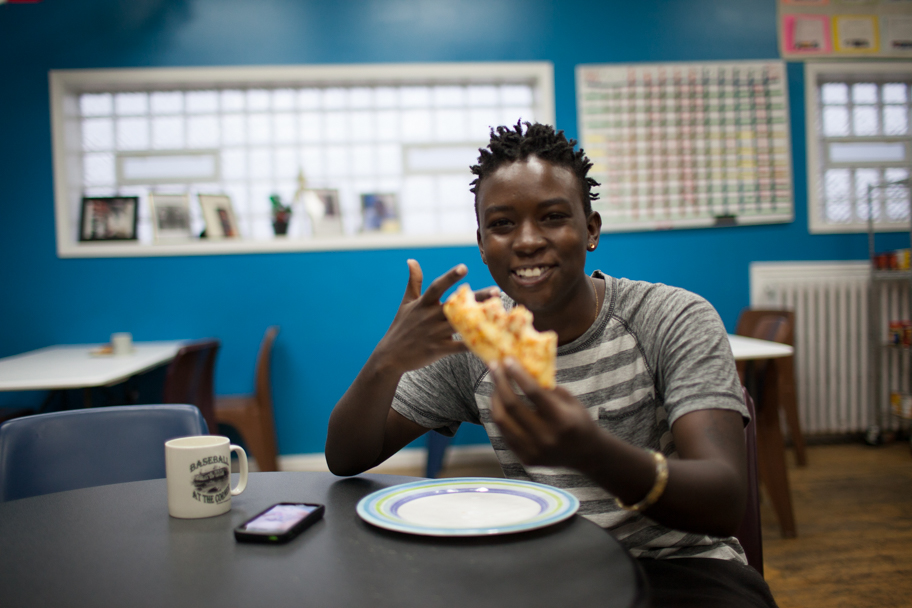
It is estimated that 1,000 homeless and runaway LGBTQ+ youth reside in metropolitan Detroit and the REC serves at least half of them.
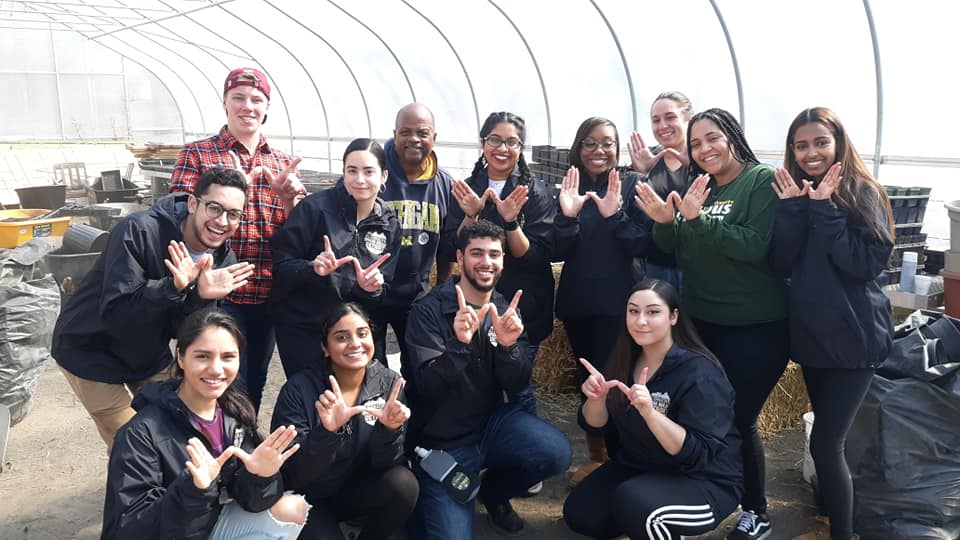
Grant Awards
The following lists show The Jewish Fund grants that were approved during the 2019-2020 fiscal year at the May and November 2019 board meetings. The lists include both new and continuation grants and are divided into sections reflecting the primary program areas of The Jewish Fund’s grantmaking priorities.
Health and Welfare of the Jewish Community
In keeping with its mission, The Jewish Fund emphasizes support of health and social welfare services which benefit vulnerable and/or underserved Jewish people in the community. Additionally The Fund supports innovative initiatives that enhance the historic bond between the Jewish community and Detroit.
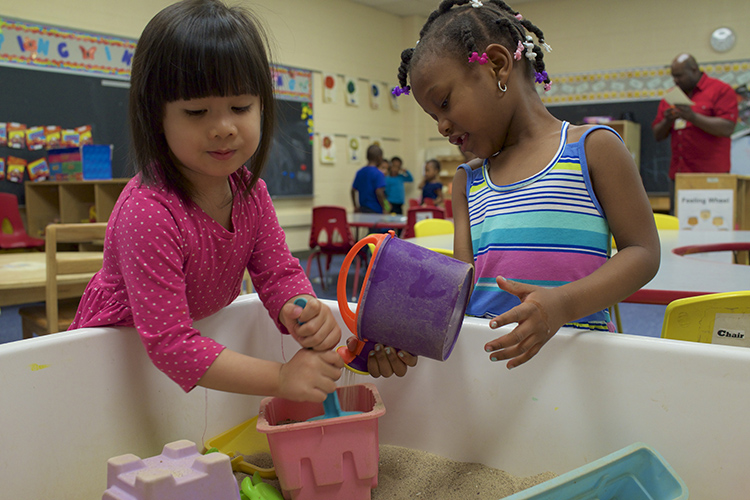
$50,000
Community Foundation for Southeast Michigan
First year of a two-year grant of $100,000 to increase and enhance access to quality treatment of opioid use disorder.
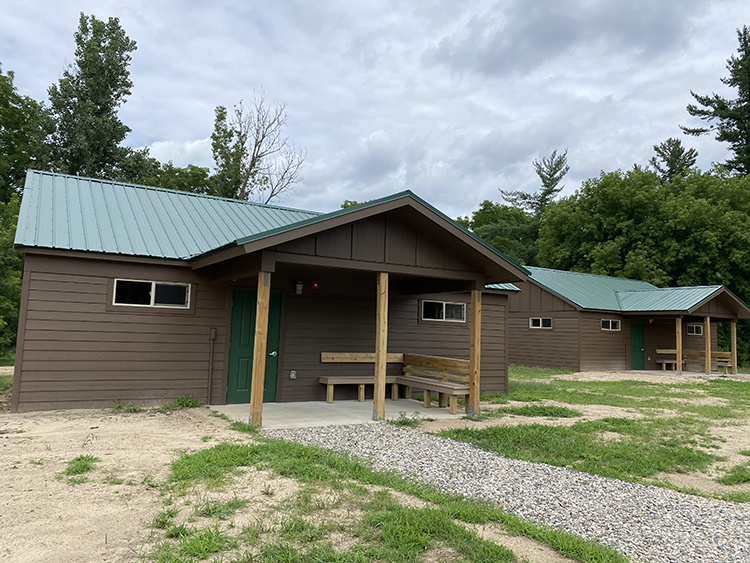
$448,240
Fresh Air Society/Tamarack Camps
One-year grant to build new cabins for Avodah participants at Camp Maas.
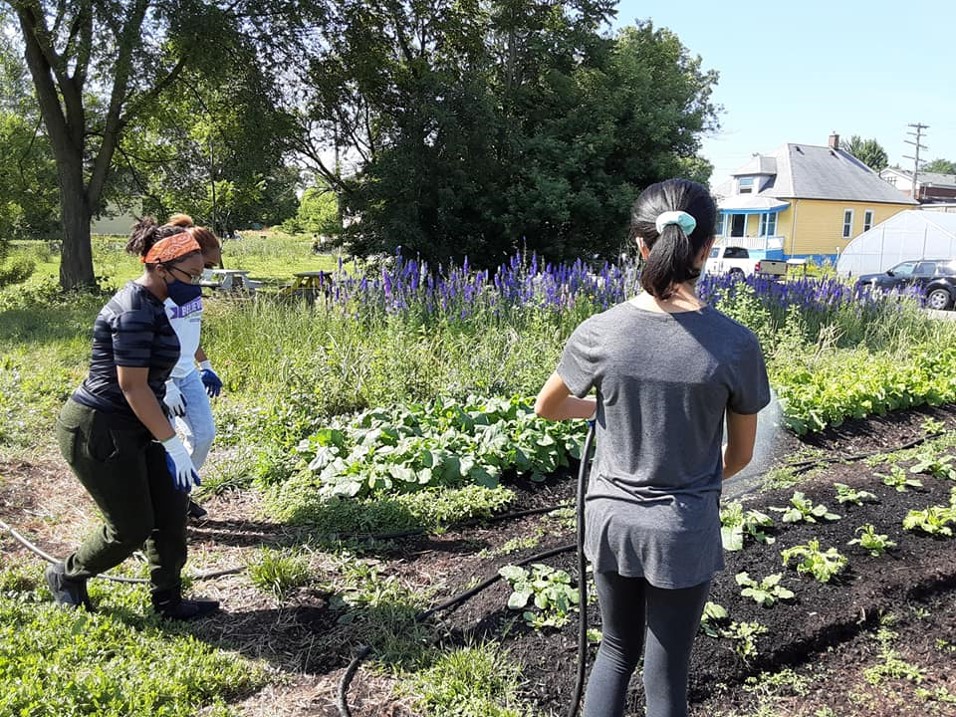
$49,500
Hazon
Second year of a three-year grant of $128,920 to build on the Jewish community’s investment and involvement in the design and build-out of the Oakland Avenue Urban Farm Detroit Cultivator project.
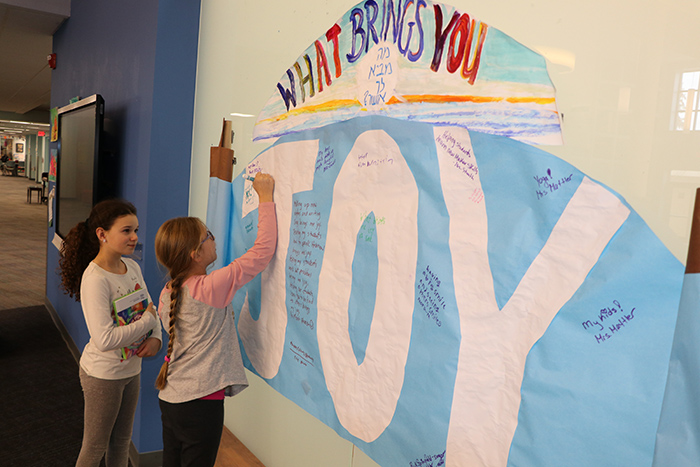
$25,500
Hillel Day School
Second year of a three-year grant of $111,340 to implement the Responsive Classroom, part of the Enhancing Social-Emotional Learning curriculum.
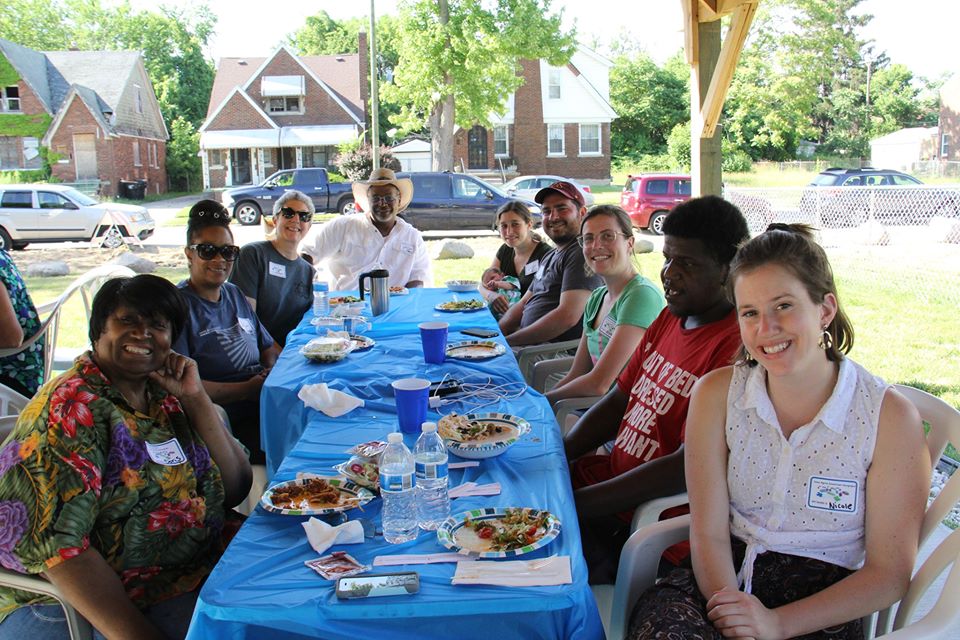
$80,000
Isaac Agree Downtown Synagogue
Third year of a three-year grant of $331,100 to expand integral on-sitFirst year of a two-year grant of $140,000 to enhance its capacity to create deep, authentic relationships between the Jewish and Detroit communities.
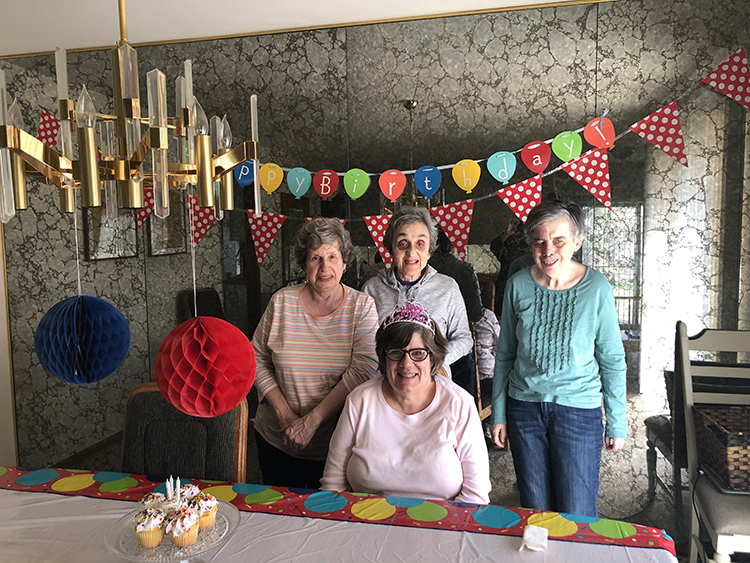
$274,830
JARC
First year of a two-year grant of $354,660 to implement an electronic health records system.
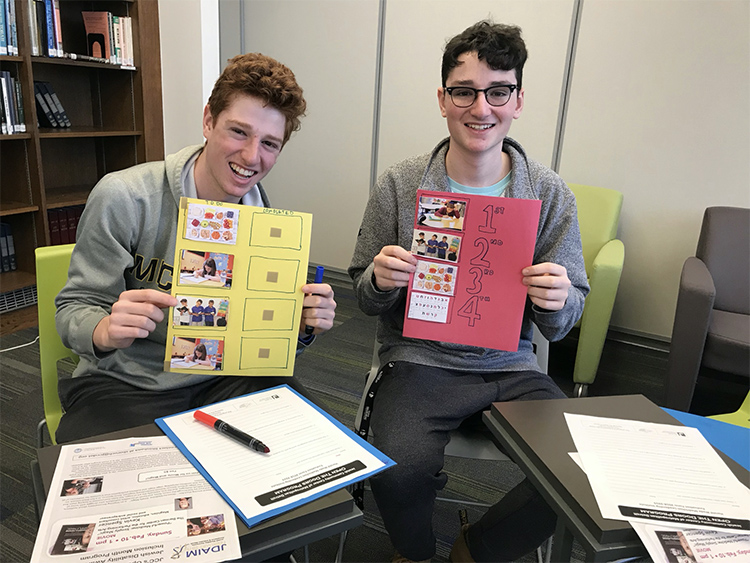
$50,000
Jewish Community Center of Metropolitan Detroit
One-year Challenge Grant to support the Opening the Doors School Inclusion Program due to loss of funding.
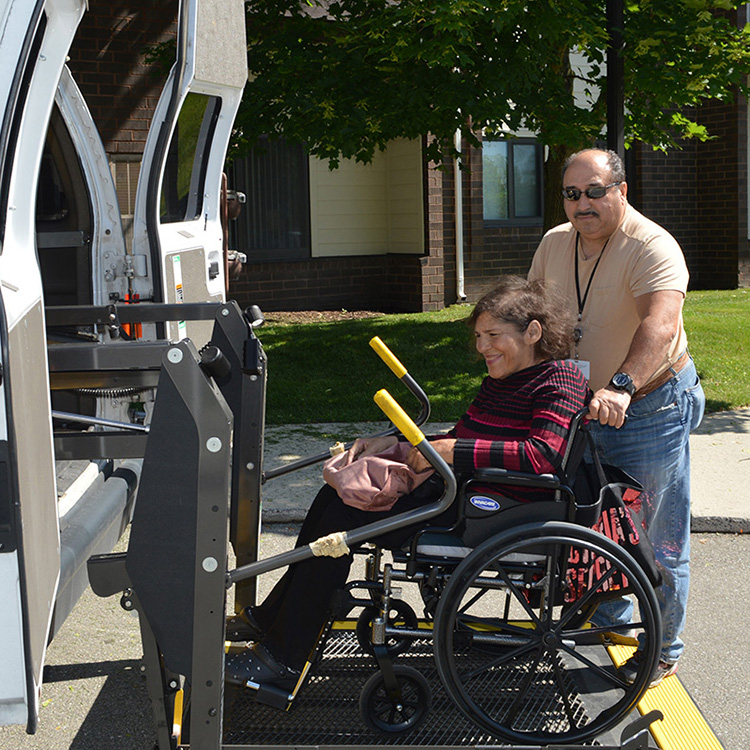
Jewish Family Service of Metro Detroit
$320,000First year of a three-year grant of $900,000 to support aging in place services (escorted transportation and in-home support).
$90,000Second year of a three-year grant of $275,000 to support its chronic care management initiative.
$70,000First year of a two-year grant of $120,000 to strengthen the capacity of the Southeast Michigan Senior Regional Collaborative.
$67,476Second year of a three-year grant of $203,951 to hire a social worker to be placed with BBYO.
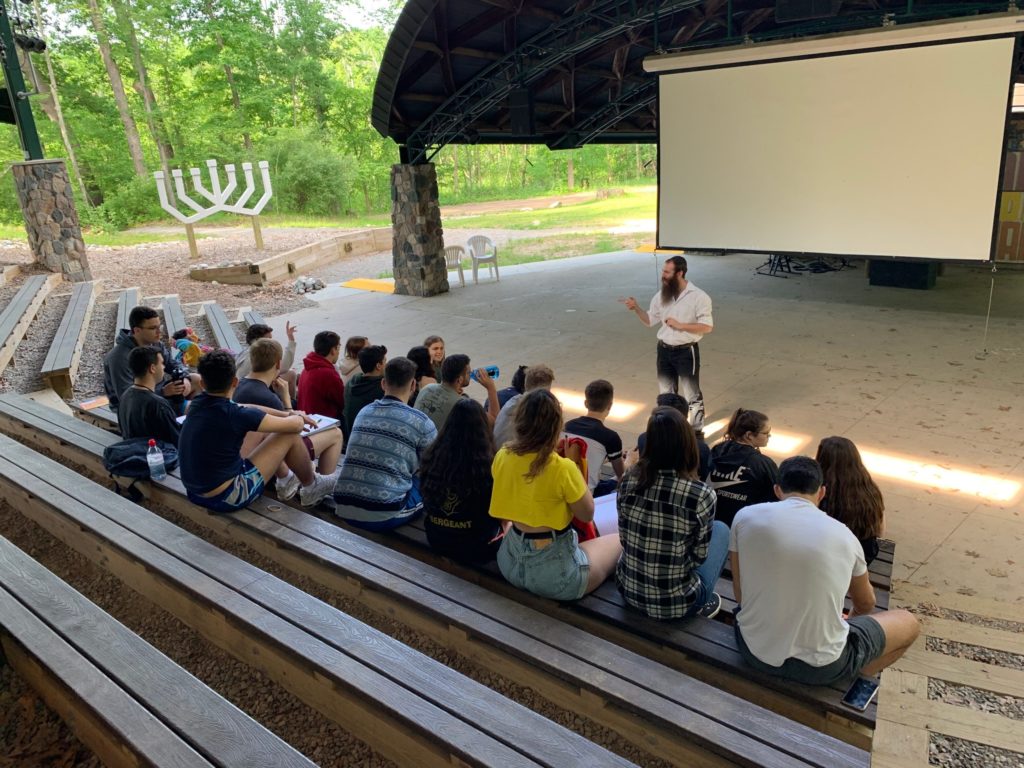
Jewish Federation of Metropolitan Detroit
$325,000One-year grant to support consulting services to assess social service delivery processes in the Jewish community.
$78,135Third year of a three-year grant of $236,095 to develop, implement and market JHELP – Community Wide Service Portal.
$75,000First year of a three-year grant of $250,000 to frontload Centennial Fund gifts that align with The Jewish Fund’s priorities.
$80,000Third year of a three-year grant of $376,500 to train Jewish community professionals and volunteers in responding to teen mental health issues.
$500,000One-year urgent needs grant for Federation’s COVID-19 emergency campaign.
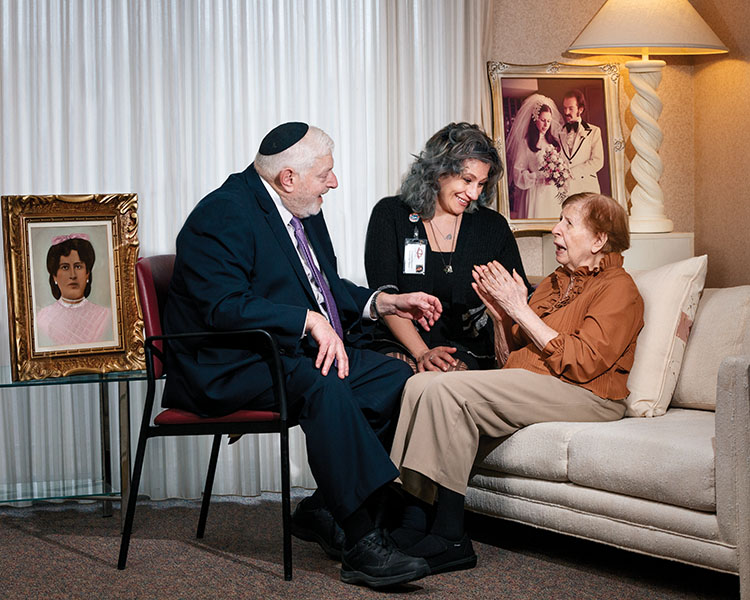
$75,000
Jewish Hospice & Chaplaincy Network
Second year of a three-year grant of $225,000 to support expansion of its Life Enrichments Program.
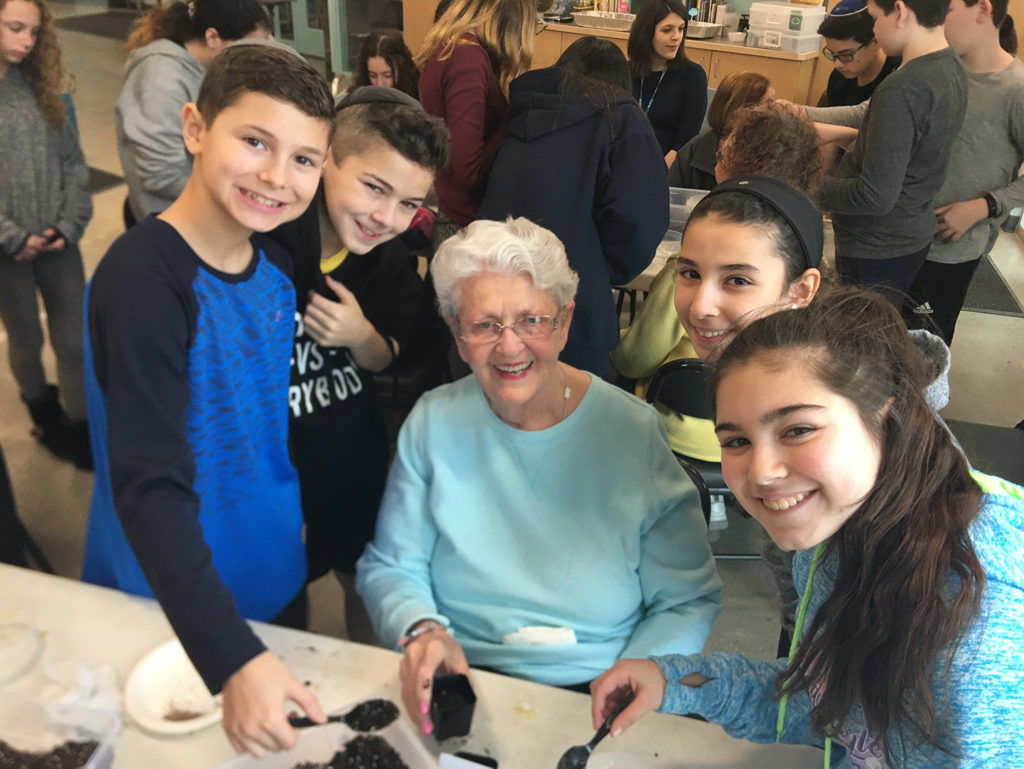
$150,000
Jewish Senior Life
Second year of a three-year grant of $500,000 to support two social welfare programs during its Securing Our Future campaign.
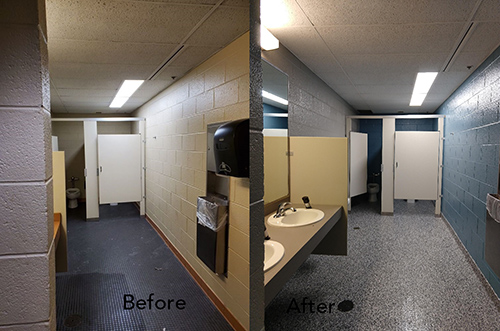
$92,500
JVS Human Services
One-year grant to renovate the activities center for improved community inclusion experiences.
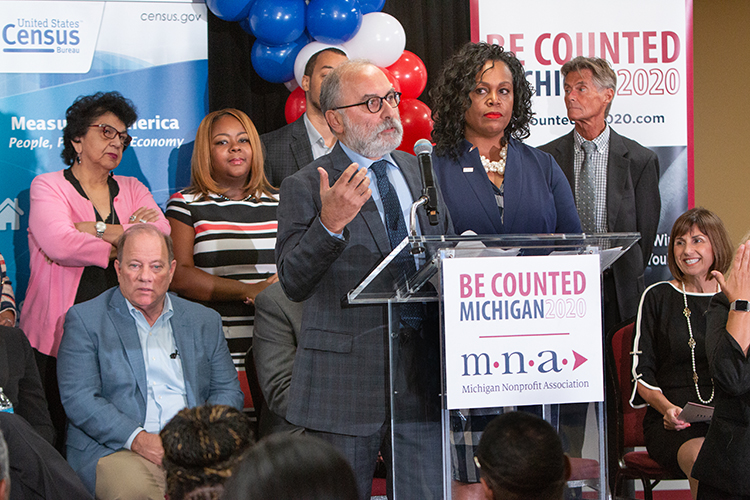
$50,000
Michigan Nonprofit Association
One-year grant to mobilize and engage nonprofits across the state in support of the Michigan Nonprofits Complete Count Campaign for the 2020 Census.
Health of the Metropolitan Detroit Community
In order to best respond to the health needs of vulnerable and/or underserved residents of Detroit and the surrounding area, The Jewish Fund supports efforts to increase access to quality health care services and to improve health outcomes through early childhood health interventions.
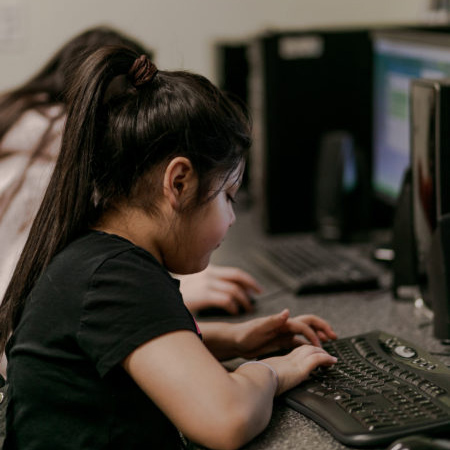
$45,000
Alternatives for Girls
First year of a three-year grant of $120,000 to promote maternal and newborn health through a range of ongoing programs and services.
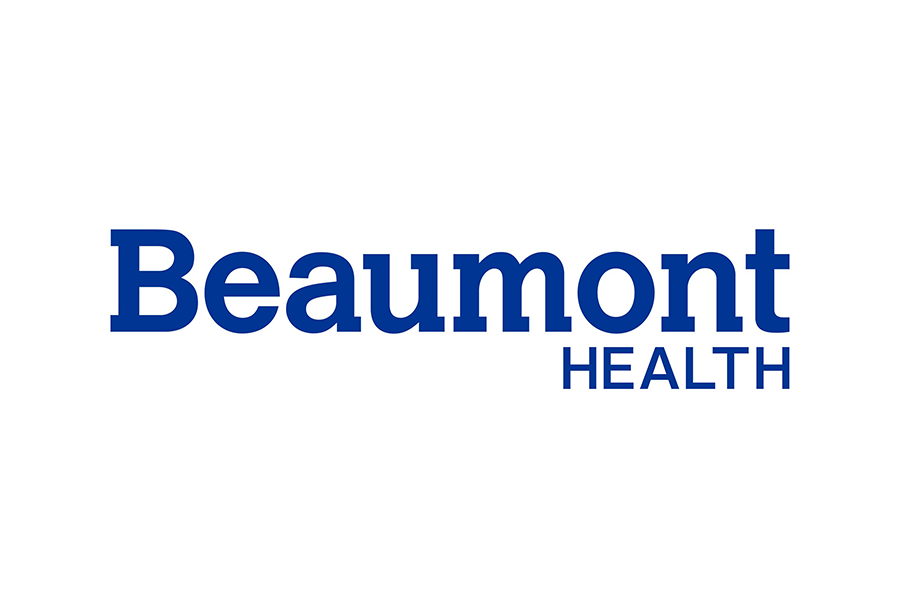
$20,000
Beaumont Health Foundation
First year of a two-year grant of $30,800 to expand cognitive behavioral therapy to teens via tele-medicine.
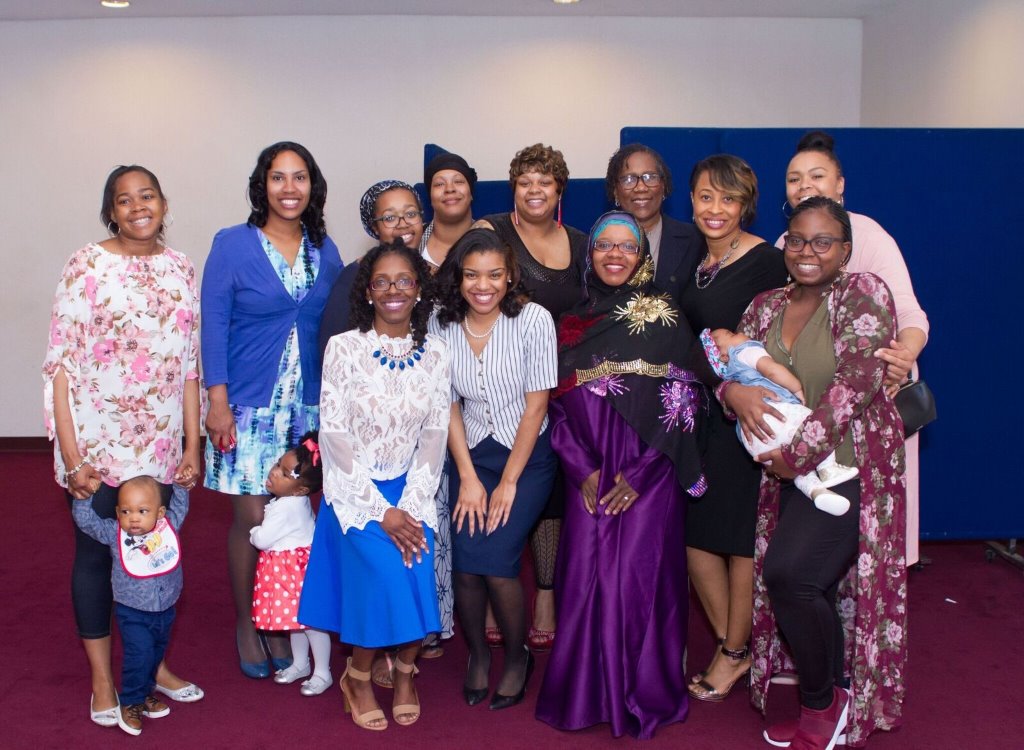
$90,975
Black Mothers’ Breastfeeding Association
Third year of a three-year grant of $270,885 for its community-based doula accreditation program.
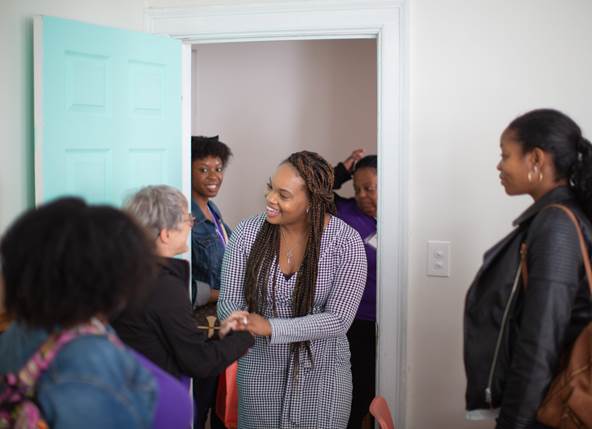
$35,000
Brilliant Detroit
First year of a two-year grant of $70,000 to support the hiring of a development director.
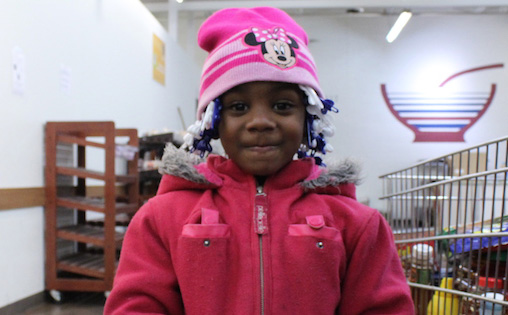
$10,000
Capuchin Soup Kitchen
One-year urgent needs grant for COVID-19 emergency funds.
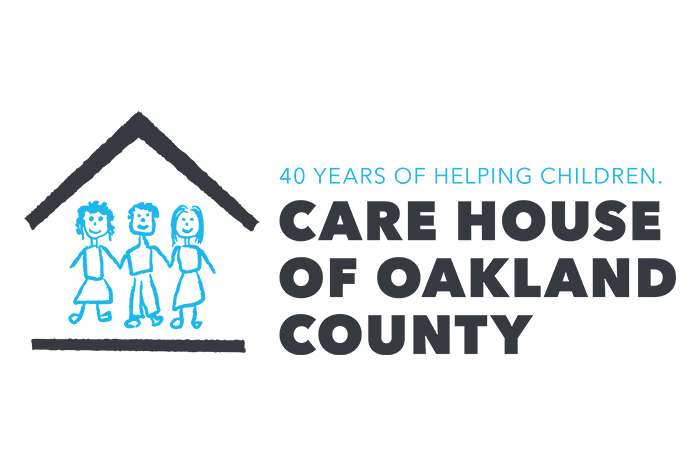
$11,000
CARE House
Second year of a three-year grant of $36,350 to provide child abuse prevention trainings for medical professionals throughout metropolitan Detroit.
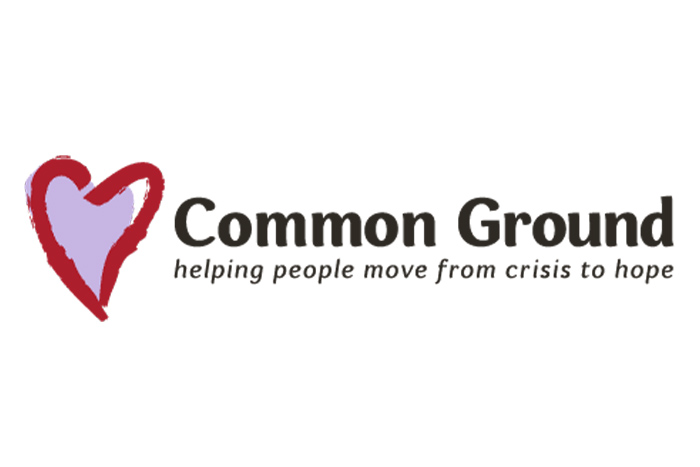
$20,000
Common Ground
First year of a two-year grant of $70,000 to support its 24/7 Crisis Text and Chat program.
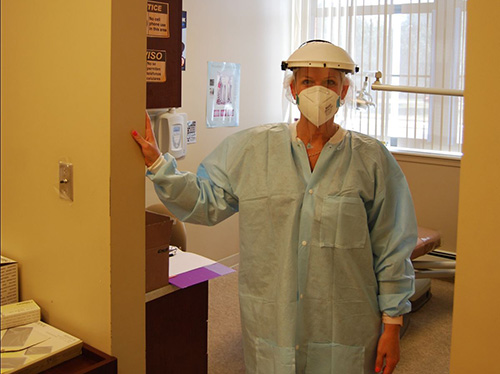
$20,000
Covenant Community Care
One-year urgent needs grant for COVID-19 emergency funds.
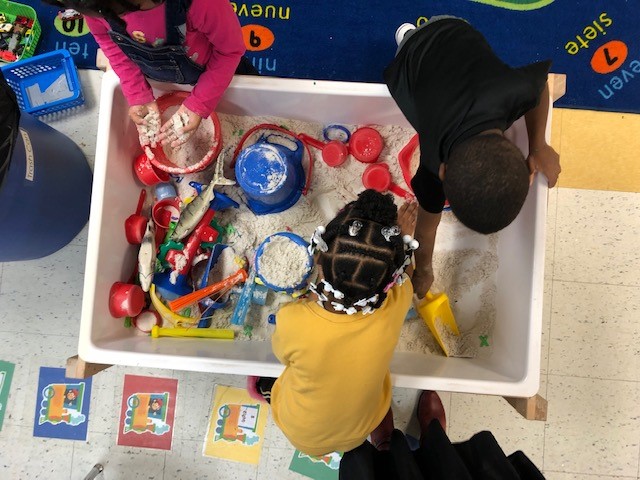
$29,584
Development Centers
One-year grant to implement training programs leading to the improvement in the social and emotional health of young children at risk of preschool expulsion.
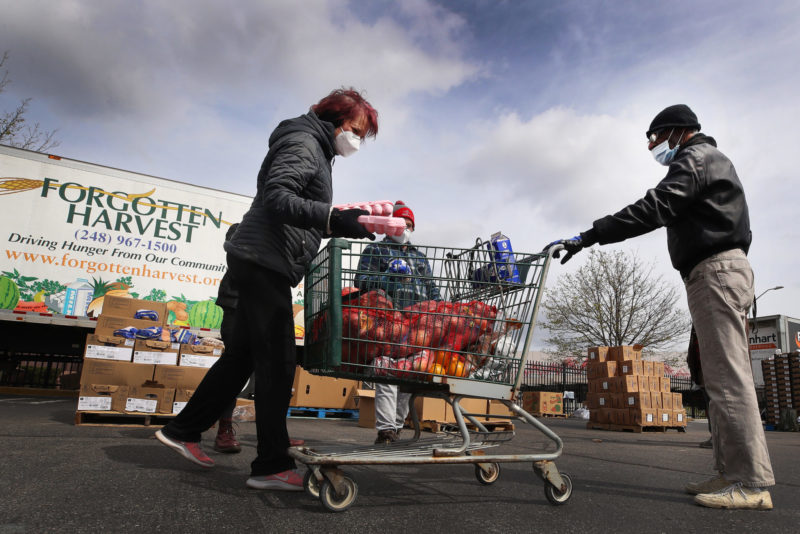
$25,000
Forgotten Harvest
One-year urgent needs grant for COVID-19 emergency funds.
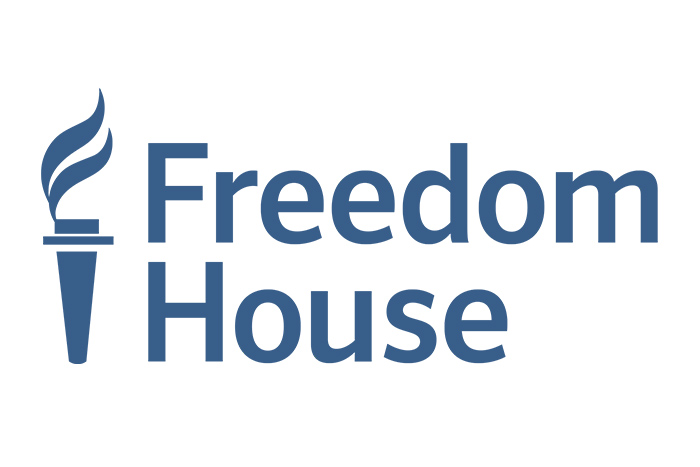
$50,000
Freedom House
Three-year grant of $133,000 to train and coach asylum seekers to confidently advocate for their health care needs.
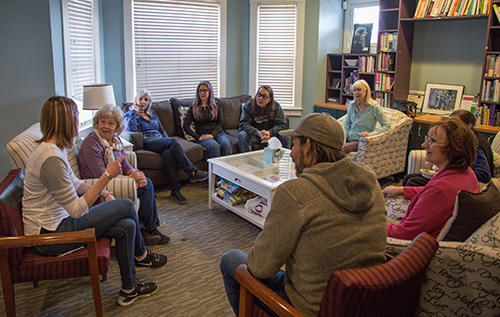
$6,970
Gilda’s Club – Metro Detroit
Second year of a three-year grant of $20,000 to support, educate and empower cancer survivors.
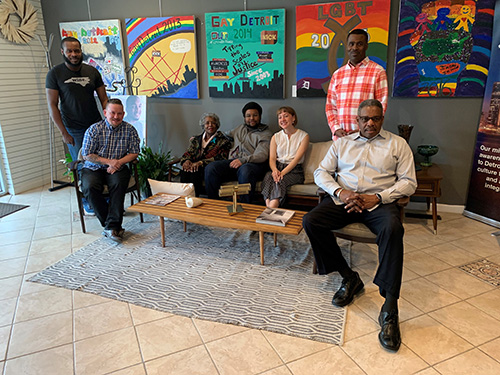
$20,700
LGBT Detroit
Second year of a three-year grant of $69,000 to supplement services to those living with HIV and AIDS in the LGBT Community and support those who are negative to remain negative.
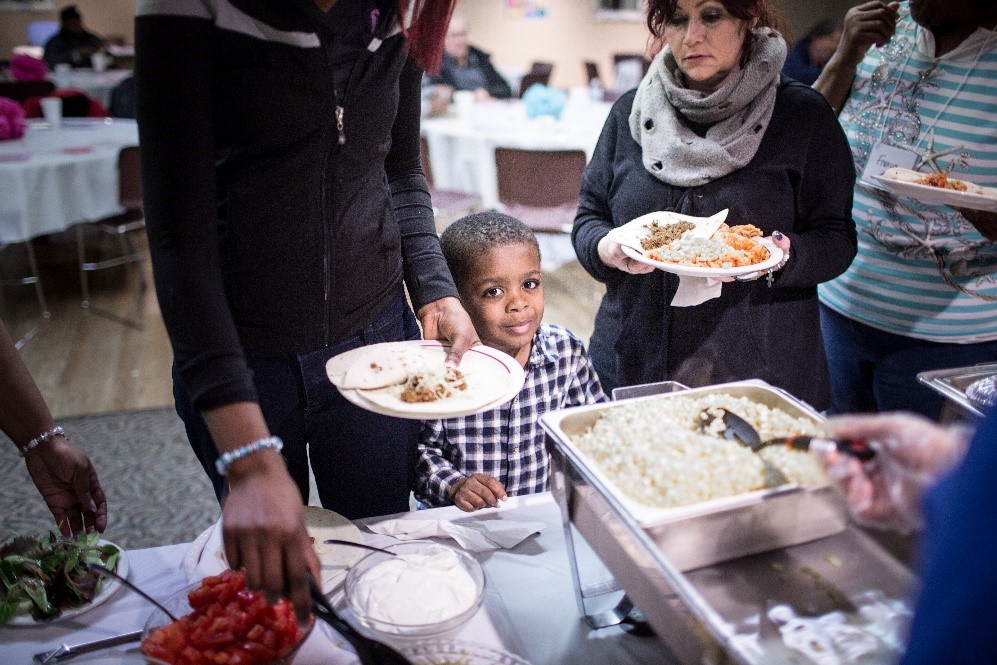
$25,000
Lighthouse/South Oakland Shelter
One-year urgent needs grant for COVID-19 emergency funds.
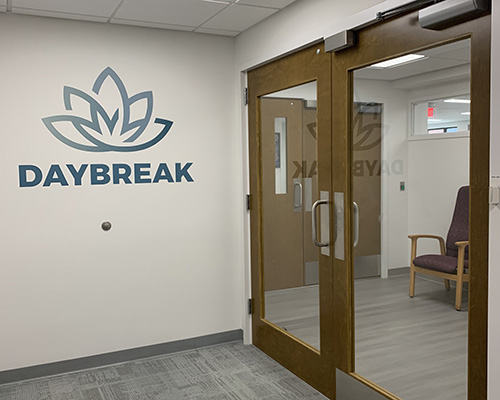
$60,000
Luella Hannan Memorial Foundation
Second year of a three-year grant of $195,000 to operate a day center in Detroit exclusively for people with dementia and their caregivers.
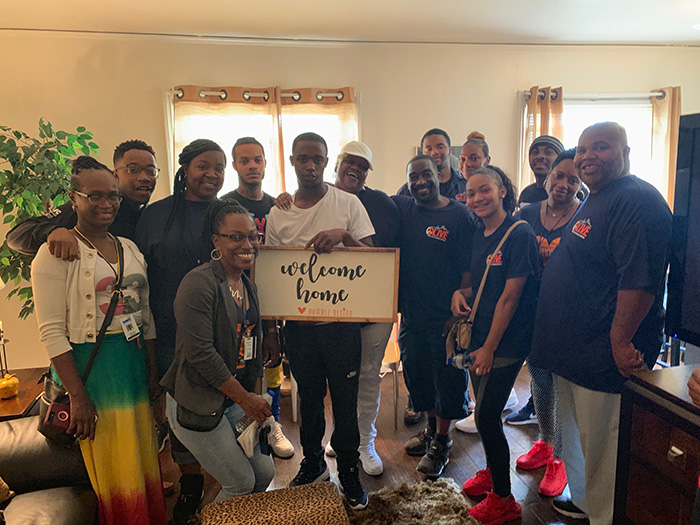
$150,000
Metro Solutions/DLIVE
Second year of a three-year grant of $450,000 to enhance and expand DLIVE’s operations to improve outcomes for young survivors of community violence in Detroit.
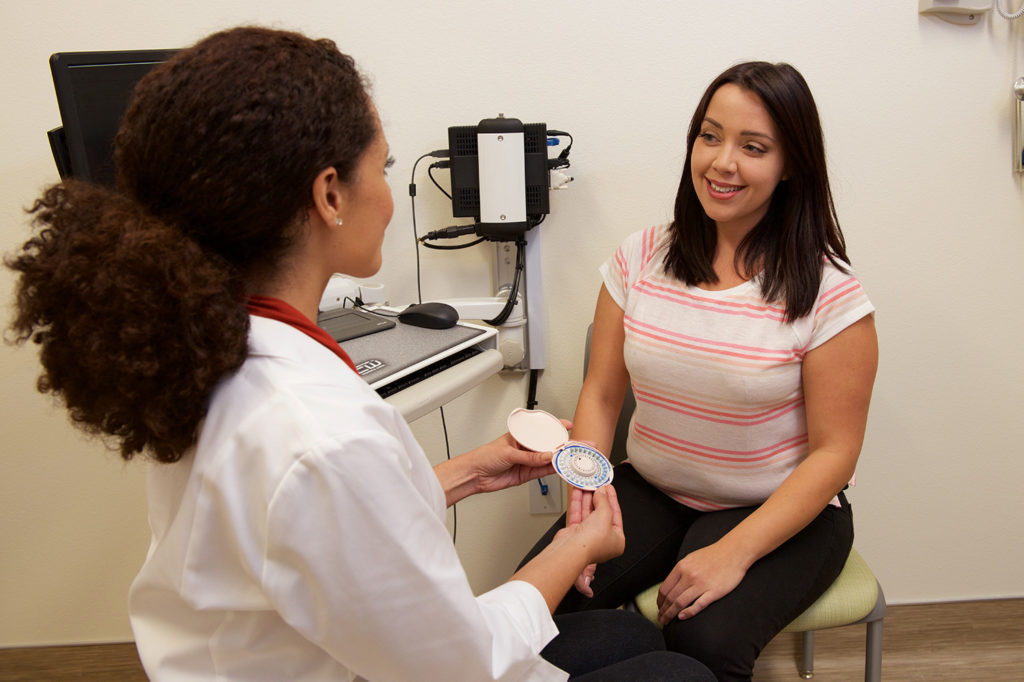
$58,630
Planned Parenthood Mid and South Michigan
Second year of a two-year grant of $127,260 to address racial disparity in the infant mortality rate by decreasing unplanned pregnancies and sexually transmitted infections through increased access to reproductive health care service in Wayne County.
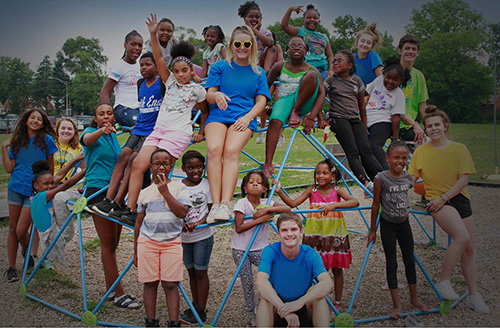
$20,000
Project Healthy Community
One-year urgent needs grant for COVID-19 emergency funds.
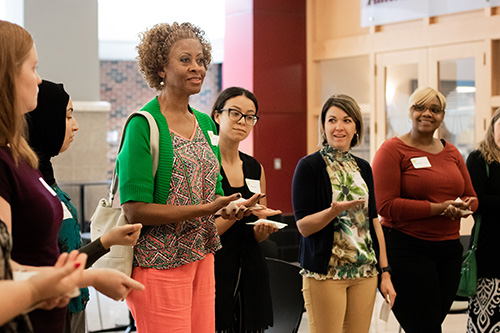
$60,000
Regents of the University of Michigan/TRAILS
First year of a two-year grant of $120,000 to design, implement and evaluate an evidence-based mental health prevention-to-intervention program. Funder Collaborative; contingent upon approval to proceed by Detroit Community Schools District.
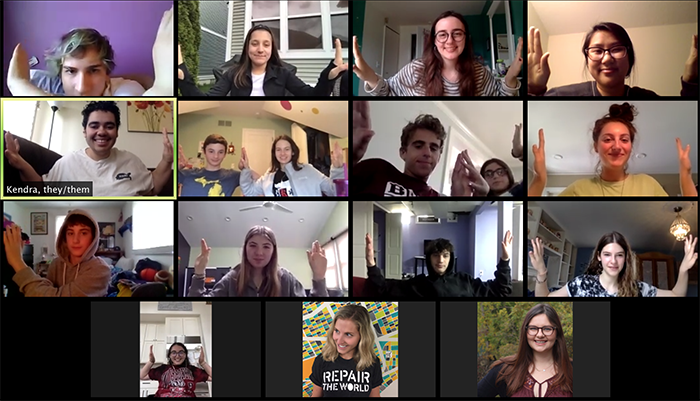
$65,850
Repair the World
First year of a three-year grant of $168,350 grant to expand its service and learning programming for young adults, teens and families.

$19,950
The Children’s Foundation
Third year of a three-year grant of $59,850 to support its vision program benefitting economically disadvantaged Hamtramck Public Schools students.
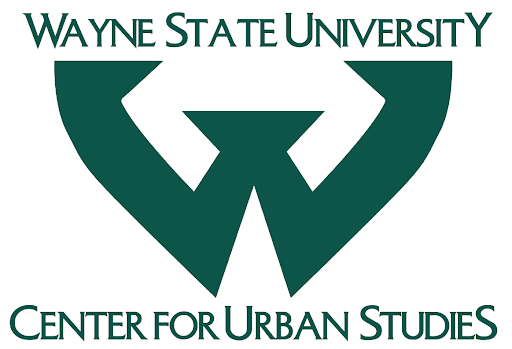
$57,341
Wayne State University Center for Urban Studies
Second year of a three-year grant of $172,016 to reduce the incidence of intimate partner violence and improve the wellness of survivors.
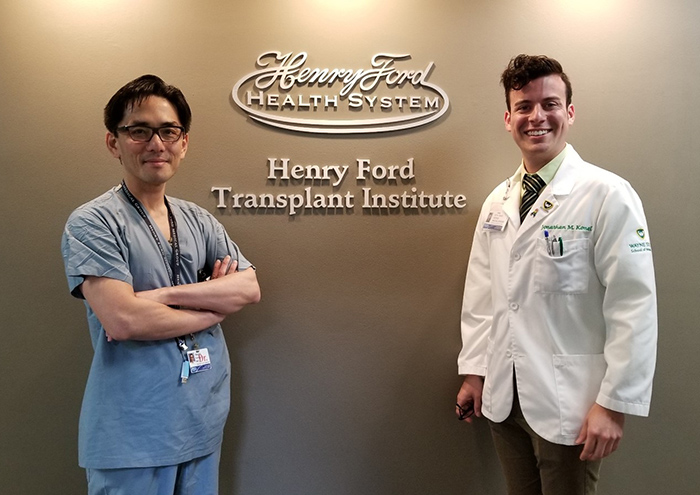
$40,000
Wayne State University School of Medicine
Third year of a three-year grant of $120,000 to provide medical students with a summer research internship.
Discretionary Fund Grants
- Freedom House
- $5,000
- for COVID-19 Personal Protective Equipment
- Hope Recuperative Care Center
- $5,000
- for COVID-19 Personal Protective Equipment
- JDC
- $10,000
- for Hurricane Dorian relief
- Jewish Family Service
- $5,000
- to support a Hebrew Free Loan client experiencing extreme economic hardship
- Temple Israel
- $12,780
- to pay medical expenses for a famiy experiencing extreme economic hardship
- Temple Israel
- $6,000
- to support the Help from Afar program
- Individual Grant
- $15,000
- to support residental psychiatric services for an individual in need
- Individual Grant
- $2,500
- for in-home support of a disabled individual with cancer
- Individual Grant
- $2,500
- to pay funeral expenses for a family in need
- Professional Development
- $64,000
- for transformative professional development experiences for our grant partners.
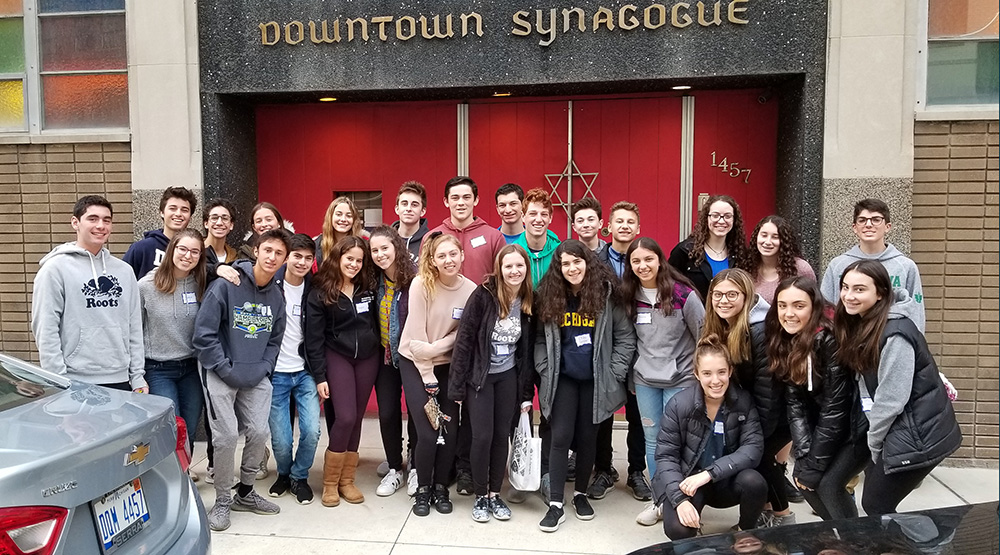
The Jewish Fund Teen Board
The Jewish Fund Teen Board is a collaborative philanthropy group providing Jewish teens from the Metro Detroit area the opportunity to learn about grantmaking and philanthropy.
Teen Board 2019-2020
In 2019-2020, our 6th year of programming, two cohorts of teens participated in the grantmaking process. Year 1 consisted of 29 teens experiencing grantmaking for the first time. Year 2 board members had chosen to continue their Teen Board experience by deepening their knowledge and skills through a second year of participation. 56 Teen Board members representing 13 high schools and 14 congregations, granted a total of $100,000. This report is about who they are, what they did and how they did it.
2019-2020
The Jewish Fund Teen Board Mission Statements
Year 1 Cohort
The 2019-2020 Jewish Fund Teen Board (Year 1) will support programs that assist people with mental health issues or disabilities, particularly those in poverty who normally would be unable to afford these programs/services.
Year 2 Cohort
As the 2019-2020 TJFTB Year 2, we wish to improve the health and welfare of individuals in our community who are experiencing significant economic hardship.
Funding was considered for:
- Programs or services which address financial education and/or job training within the Jewish community, as we know that the ability to address personal health concerns is highly linked to financial stability.
- Programs or services addressing obstacles for individuals in securing safe and reliable housing, as we know that homelessness is closely connected to declines in physical and mental health.
- Programs or services which increase the access to quality health care for vulnerable and/or underserved residents of metro Detroit.
The Teen Board Experience: Voices of Our Members
These reflections were composed in a collaborative fashion in order to represent each board as a whole.
What influenced the development of your mission statement and your funding choices?
Elliot Kaftan (Year 2)
It was important to choose a focus area so we are able to look into a more specific issue in our community and be able to use our funds to help combat or solve it. Although we were blessed with the money we had, our funds were still limited. If we were to not choose a focus area, the money would be more spread out and therefore less impactful on each organization. Choosing a focus area allows us to focus our funds as well as our efforts on one or two specific causes which therefore makes everything more impactful.
Zoe Zaltz (Year 2)
With everything happening in the world with COVID-19, every need that was present prior to this crisis is amplified. People are struggling and are in search of help more than ever. Going through this time has made me realize how fortunate I am to be in a stable family and have a supportive community. It has also made me recognize my responsibility and desire to help others around me. Additionally, the difficulties that COVID-19 has brought have compelled the whole community to come together. Seeing people who are struggling themselves sacrifice so much to be there for their neighbors is heartwarming and inspiring. Overall, COVID-19 has opened my eyes to the true goodness in our community and our ability to come together to support each other.
Ali Chapnick (Year 1)
Mental Health was very important to include in our mission statement because it is such an ongoing issue for many people, and they should not have to be fighting alone.
Elisha Cooper (Year 2)
Our mission has been influenced by the events happening in our world because we have learned to adapt to helping those in need in times of crisis. Although unfortunately there will always be people in need, the events happening around us help us to prioritize where to allot money. For instance, directly following natural disasters, we tend to allocate our funding to the very pressing disaster relief programs as opposed to the charities that may be less time-sensitive. Especially now, with the unfortunate reality of the Coronavirus, our mission must adapt so that we can make the biggest difference in the most pressing cause and ultimately, help the most people possible.
Haylie Polakoff (Year 2)
Our mission statement is more important now than ever. So many people are struggling to find shelters, get a job, and remain stable both physically and mentally. As a result, funding organizations with the goal to help with poverty and security are crucial right now. And Teen Board is doing its best to help others deal with COVID by supporting these organizations.
Marlee Kroll (Year 2)
The way that our mission was influenced by the Covid-19 pandemic was that it really made all of the members on the board put into perspective how someone who is already struggling could be handling this current lockdown situation. For this reason it is even more crucial that the teen board funded organizations devoted to helping people who have mental health issues because in a time like this, the need for financial help is greater than ever. In unusual times like we are in now, we must pay close attention to the people we know who may be need.
Noah Goldberg (Year 1)
I wanted to support people with special needs, as I want to give them the same kind of support as I received myself.
Haley Lipman (Year 1)
Mental health was important to include in our mission statement because it is so relevant in making both Jewish and non-Jewish members a part of a better community. If everyone is able to receive the help they need, the community will be much healthier and happier. Once a person receives help, they are able to contribute in a greater way to their community.
Jonah Mougoue (Year 1)
Prioritizing helping those experiencing economic hardship was important to include in our mission statement because while people of all income levels can have special needs or mental health issues, those experiencing poverty have a more difficult time accessing resources to assist them as many of these resources cost money. By focusing on those experiencing economic hardship, we provide more people with access to resources.
Hannah Rashty (Year 1)
Our mission this year was influenced a lot by the events happening today and more specifically Covid-19. I think, with Covid-19 hurting a lot of families economically and increasing stress and anxiety, our mission made an even greater impact on our community. When we decided to make our final decisions on what organizations to support we went with ones who could support people struggling with everything going on in today’s world. It was sad that we had to eliminate the ones that included summer camps but it was what made sense for the time being. I think our mission statement tied into the crisis going on right now and that as a team we made the right choices on what organizations to fund.
Macy West (Year 1)
With Covid-19, it is more important than ever to give if you have the ability. While this has not affected our mission to make a difference in as many people’s lives struggling with mental illness and disabilities as possible, I believe it has shifted the focus on how effective the proposals will be during the pandemic or lockdown. Luckily, the organizations have thought in similar ways and are already creating new ways to reach their audience during the crisis. However, we really had to think about if the crisis made a proposal more essential or something to wait for after Covid-19. This was very difficult because on a normal day it was clear all of the proposals were deserving funding. No matter what we would still be making a difference in an essential time, and that’s what really mattered.
Mia Lewis (Year 1)
The effects of the world, specifically Covid-19, made me realize how people with mental health challenges or special needs are being affected. It brought to light how important the work we are doing truly is. This has made me realize how grateful and lucky I am to live like this and I am extremely happy I can help others through this wonderful board.
Morgan Cook (Year 1)
Our mission was influenced by COVID-19 because the virus changed many proposals and forced us to turn others down that we normally would have been more open to under different circumstances. This was such a sudden, unexpected change in our world, and it forced us all to focus in on what we felt was most important in this time of crisis versus what could be put on hold.
Emily Abrams (Year 2)
When choosing our mission statement for the coming year of grantmaking decisions, Year 2 decided to aim our focus at tackling the issues of homelessness and poverty. Especially for the Metro-Detroit community, we felt like these were significant issues, and had a strong drive to help relieve some of their effects in our grantmaking process. For me, going on my site visits was very impactful, and made me more aware of how these issues affect families in our community, and made me more excited to make a positive change in these areas of concern. Then, as the COVID-19 crisis developed, our mission became even more important, as issues like homelessness and poverty were exacerbated by the increasing job insecurity for families. I’m grateful that we focused on issues like these, because we were able to connect with nonprofits that are working hard to respond to these uncertain times and still maintain our intended focus.
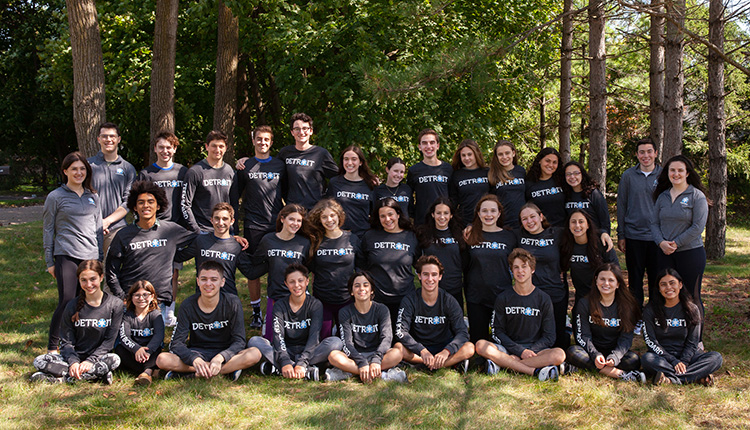
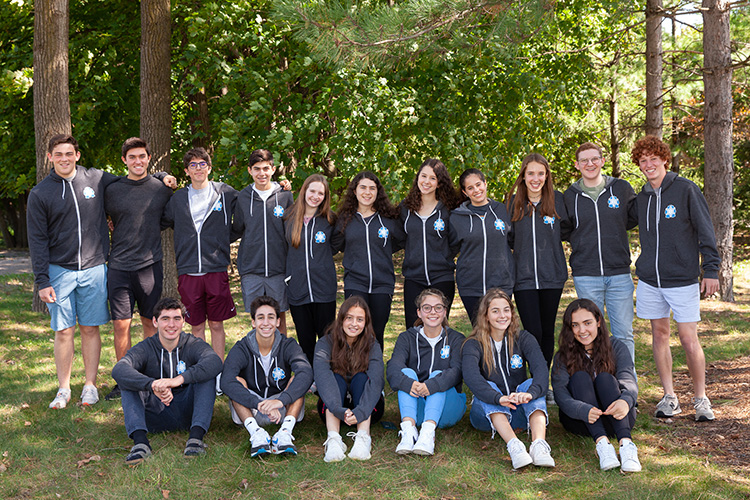
“Our mission statement is more important now than ever. So many people are struggling to find shelters, get a job, and remain stable both physically and mentally. As a result, funding organizations with the goal to help with poverty and security are crucial right now. “
– Haylie Polakoff (Year 2)
“Our mission has been influenced by the events happening in our world because we have learned to adapt to helping those in need in times of crisis. Especially now, with the unfortunate reality of the Coronavirus, our mission must adapt so that we can make the biggest difference in the most pressing cause and ultimately, help the most people possible.”
– Elisha Cooper (Year 2)
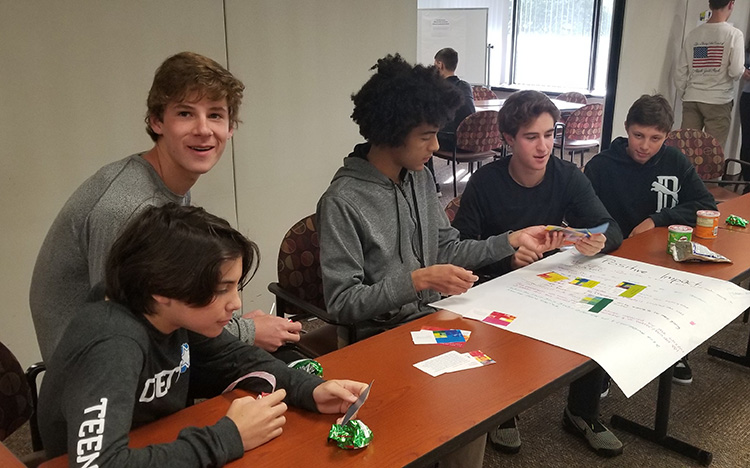
“Coming from a reform-conservative background, I’ve always been taught the importance of Tikkun Olam and helping others within our community. This year, I was able to see these come to life with my Judaism playing an influential role in my grantmaking decisions. Seeing many of these non-profits reflecting the same values of my Judaism genuinely showed me how the impact each of us make on this world is larger when we’re a collective.”
– Josh Schreiber (Year 1)
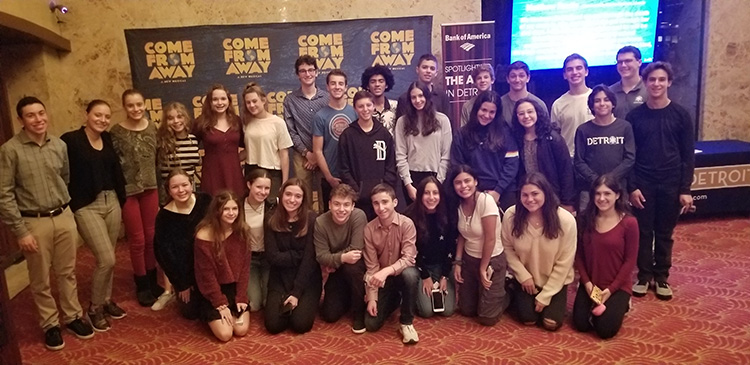
“Each Teen Board member has different opinions about what is most important to try to change in society. Sometimes it can be hard to come to an agreement. We try to resolve this by actively listening to each other and not criticizing each other, after all, everyone on Teen Board is there because they want to make a difference in the world.”
– Jesse Krugel (Year 2)
The Leadership Experience…What are the benefits and challenges to providing leadership to your peers?
Benny Shaevsky
My experience as a Leadership Committee member on the Teen Board will ensure that I always value the importance of giving back to my community by helping those in need. This is particularly emphasized in the Teen Board through the practice of philanthropy. In the future, I plan to become involved with charitable causes that engage in this important work so that I can continue the important role that organizations such as The Jewish Fund prioritize. I will never take for granted how fortunate I am to be surrounded by terrific non-profit organizations both in the Jewish and secular communities that devote their mission to ensure that all people are assisted during times of need.
Providing leadership to my Teen Board peers has given me the ability to develop valuable qualities such as patience, empathy, and other skills I need to properly motivate this that I am leading. This experience has taught me how to become a better leader by realizing that leadership can often involve problem-solving, such as when an activity or group engagement project does not go as planned. A challenge that I encountered during my leadership role has been how to properly balance my direction so that the group that I am leading receives enough encouragement and guidance from me without the appearance that I am directing them in a forceful or overcritical manner.
What is the opportunity or challenge of making funding decisions with your peers?
Jesse Krugel (Year 2)
Being Jewish is one of the only similarities between the members of the Teen Board. We have members from all over Metro Detroit, from private and public schools, religiously affiliated or not. The Board represents many sects of Judaism as well. There are so many different perspectives on Teen Board, which makes for a fulfilling, yet sometimes challenging experience. I remember last year we had trouble coming to a final decision, there were so many opinions about each of the proposals. This year, I think our most challenging discussion was choosing a focus area. There are so many issues to try and solve in society. Many people are passionate about different things. It’s important to narrow down mission statement but leave it broad enough that we can get a sufficient amount of proposals.
Barry Sabin (Year 2)
I thought making funding decisions with my peers was a great learning and bonding experience. Discussing a conflict and coming to a collaborative conclusion can easily strike up an argument but learning how to understand the opinions of our peers helped us all to come to our funding decisions productively. I was also able to meet and come closer with people I may not have if there was not a discussion at hand, and what better way to collaborate than make a positive impact on the community?
Zoe Zaltz (Year 2)
Making funding decisions with my peers has a lot of benefits, although it is challenging at some times. Every single person has a different background, a different view on life, and a different opinion, resulting in a diverse range of ideas and opinions when it comes to making funding decisions. Since everyone on the Teen Board has a lot of prior experience with volunteering and philanthropy, we all have a good idea of the needs in the community and how they align with our values. With this experience comes great conversation and debate on where to place our funding. This can be a good thing, but it can also be a challenge since most people have a need in the community that they feel passionate about and want to support. Having these conversations with my peers has been eye opening because I have been able to learn about amazing organizations in the community that I might not have known about before being on Teen Board.
Julia Klein (Year 1)
Towards the end of Teen Board 2020, I was thankful for being a part of this process and working with my fellow peers. I loved knowing that I was a part of a group who strived to help others. This biggest decision we faced during year 1, was prioritizing the organizations. Personally, I thought each organization was special and unique on its own. I found it difficult to choose which organizations should be given our grant.
Carly Cohen (Year 1)
Working with teens from all over Metro Detroit in this grant making process provided so many opportunities along with challenges. Working with kids I had never met provided our board with so many different opinions and creative ideas, so it was a lot of diverse voices that got to be heard. The challenge with that is also that there are a lot of voices that should be heard, but in the end choices have to be narrowed down. It was definitely an amazing opportunity to have a big board, but there were points where some ideas could not be granted.
Haley Lipman (Year 1)
One challenge of working with my peers to make fundraising decisions is that we do not all have the same values. What we bring to the table is all so different and unique, and it may be challenging to try to find a common trend that will work as a mission statement. With all this being said, it is an amazing opportunity to be able to work with such amazing teens who have the same passion for learning and giving as me.
How does your Jewish identity intersect with your grantmaking?
Josh Schreiber (Year 1)
My Jewish identity greatly entwined with my grantmaking decisions over the last year. Coming from a reform-conservative background, I’ve always been taught the importance of Tikkun Olam and helping others within our community. This year, I was able to see these come to life with my Judaism playing an influential role in my grantmaking decisions. Seeing many of these non-profits reflecting the same values of my Judaism genuinely showed me how the impact each of us make on this world is larger when we’re a collective. Each of these decisions lined up perfectly with my Judaic background, and I’m truly happy to look back and see the direct impact and evolution of the concepts we we are obligated to fulfill as Jews, become a reality.
Joey Schwartz (Year 2)
My Jewish identity has given me a strong cultural foundation in helping others. This identity stresses the importance of our community.
Isabel Zaltz (Year 2)
My Jewish identity greatly intersects with grantmaking because I believe that tzedakah is an essential part of the Jewish experience. I have always been taught that helping others is just as important in being Jewish as going to synagogue and celebrating shabbat. In Teen Board, I learned even more about how to apply Jewish ideals to help better the community. This year, we used Jewish core values to guide our grantmaking decisions and determine our mission statement. During my Teen Board experience, I have learned the specifics of philanthropy through a truly Jewish lens.
What values drive your grantmaking?
Matthew Doctoroff (Year 2)
Being a Jewish organization, we initially NEED to look out for our community. I strongly believe that since not many people are going out of their way to help the Jewish Community, we need to take initiative and do so for ourselves. However, we shouldn’t only help our religion. It is the ability, to, in the end, help all groups of people through tough times, and try our best to make their problems less of an issue.
Elliot Kaftan (Year 2)
There are many values, both Jewish and secular that drive my grantmaking decisions. One overarching value that does this is the Jewish value of Tzedakah, or giving charity. Another value that drives these decisions is the idea of helping others and performing acts of kindness or Gemilut Chasadim.
Jesse Krugel (Year 2)
When debating on whether to fund a proposal, many values guide our choices. These values are closely related to our lives, what we see in society, and many are even rooted in Judaism. We give with kindness, intelligence, and in pursuit of justice. We carefully peruse each proposal, study the organizations, and think critically about how our contribution can make a difference. During site visits, we ask insightful questions to learn more about organizations and how they cater to our mission statement. Each Teen Board member has different opinions about what is most important to try to change in society. Sometimes it can be hard to come to an agreement. We try to resolve this by actively listening to each other and not criticizing each other, afterall, everyone on Teen Board is there because they want to make a difference in the world.
Logan Edelheit (Year 1)
The main values that drive my grant making process are: how urgent does this organization need our funding, who will it help, how many people will be impacted. I look to get the most out of our money and make sure it is helping and impacting as many people as possible. I also look if the idea they have will work in real life, not just on paper, therefore, I was more devoted to the organization I had the opportunity to visit, like Common Ground.
Noah Goldberg (Year 1)
One of the main values that drove my grantmaking decisions was that I wanted to prevent people from suffering.
What are the pros and cons of using consensus to make decisions?
Gabe Singer (Year 2)
Using a consensus philosophy when making grant-making decisions was definitely beneficial within my time at the Teen Board. Everyones’ opinions were valued equally, which allowed everybody to be equally invested and informed with the decision we were making. However, consensus can often be challenging to obtain, which means healthy debates were prevalent. Ultimately, using consensus led to the best possible decision in the eyes of our Teen Board.
Barry Sabin (Year 2)
When using consensus to come to a decision, there are obvious flaws in that some people’s hopes may not have been followed through. However, by majority vote after long hours of discussion, it is safe to say that the decisions made after a consensus vote are what is most representative and best for the group.
Abby Foltyn (Year 2)
There are many pros and cons to making decisions using a consensus. They vary based on the personalities of those in the group. For example, those who are more outspoken have more of an effect on the decision that is made than those who tend to be quiet and shy. Also, those who have differing beliefs often don’t get to see the decision they want because the majority of the group disagrees. Using a consensus to make decisions allows for a discussion where many voices are heard, and debates can be very interesting and intellectually rewarding. Having the opportunity to hear how my peers view certain issues and responses helps give me a clearer perspective on the issue as a whole.
Cara Lopatin (Year 1)
A pro of using consensus is that it helps guide the path that the majority of the group wants to lead. It eliminates choices quickly, allowing the Teen Board to move forward in a timely manner. Another pro of using consensus is the inclusiveness that it provides. It includes all members of the group participating and everyone’s vote is equal. A con of using consensus is that its quick timing leaves little room for groups to debate their side. This can lead to bad ideas being passed and will only lead to worse decision making in the future. Another con is the possibility of members not caring for the topic/idea being voted for. They will give more support to one side, most likely the group that already has more people.
Noah Eaton (Year 1)
The pros of using consensus are that everyone’s opinions are incorporated in the final decisions. Even though not every single opinion is included when consensus is made, everyone can feel that they contributed to decisions made and the results of those decisions. However, the cons of consensus are that sometimes people feel very strongly about a certain view or cause, but not everyone in the group agrees, and some are very opposed to it. In that case, because consensus has to be made, some people are going to lose out because either the cause will or will not be incorporated into the final decision.
Max Adamczyk (Year 1)
There are various pros and cons of using consensus. Pros are that a majority decision will be made, empowers the group, and creates a share of understanding which is very important to a group. Cons are that is evades all individual opinions, struggling to find a consensus causes disturbance among the group, this is not good for the group.
What have you learned during your time on the Teen Board that you would like to pass along to other grantmakers?
Gabe Singer (Year 2)
I have learned many skills and ideas over my two years as a member of the Jewish Fund Teen Board. One of my most prevalent takeaways which I would like to pass along is to never disregard a proposal or request without actually taking the time to learn about it before hand. Often times I found myself uninspired by a grant proposal, based upon a 2-3 sentence description of it, but once I actually met the people whose lives would be changed should we grant the money, my entire outlook on the grant would change.
Haylie Polakoff (Year 2)
Personally, I have learned that there is so much good in this world. Before doing Teen Board, I was not aware of all of these both local and global organizations to help solve our world’s problems. And knowing that I played a role in helping others is an amazing feeling. I am so grateful to everyone who has taken it upon themselves to take action, and fight for what they believe in.
Matthew Doctoroff (Year 2)
As teenagers, having this responsibility to select organizations to give money to is extremely significant and should not, under any circumstance, be taken lightly. Because of this, approaching the grant-making process with a mature and open-minded mindset is mandatory. Life is short, but having the ability to positively impact people’s lives is something that not many have the chance to do. The Jewish Fund Teen Board, a philanthropic organization, taught me to focus on open- mindedness, compassion, and diligence when it comes to the grants that we look at. As stated before, we truly do have a big responsibility in our hands throughout the year, and it should be addressed with thought and care.
Emily Abrams (Year 2)
A major takeaway from Teen Board for me is that it really redefined what philanthropy is and who a philanthropist is, and gave us hands-on experience with working to help make a lasting change in the community. It made the realm of nonprofits, community outreach, and giving back much more realistic and tangible to me. Learning that the stereotype of a philanthropist is far from the truth of what real philanthropy is was very impactful to me, and it’s exciting to know that everyday people who are benefiting the community can be philanthropists, too. Teen Board is so unique in its mission, because it’s a valuable and rare opportunity for teens to be able to make such an impact in their community and learn so much about the nonprofits that work to improve people’s lives every day.
Year 1 Grantmaking
Supporting people with mental health issues or disabilities, particularly those who struggle to afford services
Through our experience as Detroit area teens and as active high school students, we have witnessed and evaluated the problems in our community as well as the hardships our peers face. We see first-hand how mental health challenges have impacted our friends, family and community members. We have watched and united together as tragedies have plagued our country and even our world. Gun violence, religious hate crimes and crumbling educational infrastructure have captured our attention. Through these issues, we have found the opportunity to focus our philanthropic efforts this past year.
The Teen Board is proud to fund four organizations committed to making significant community impact in this area:
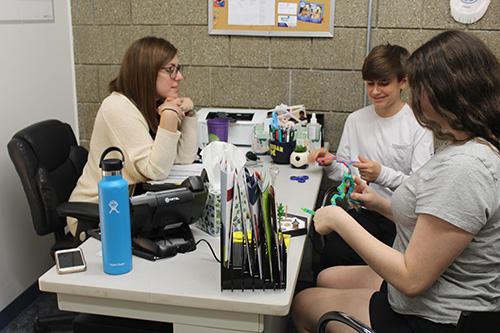
$15,000
Jewish Family Service
to improve access to affordable mental health services for those who cannot afford them in the Jewish community.
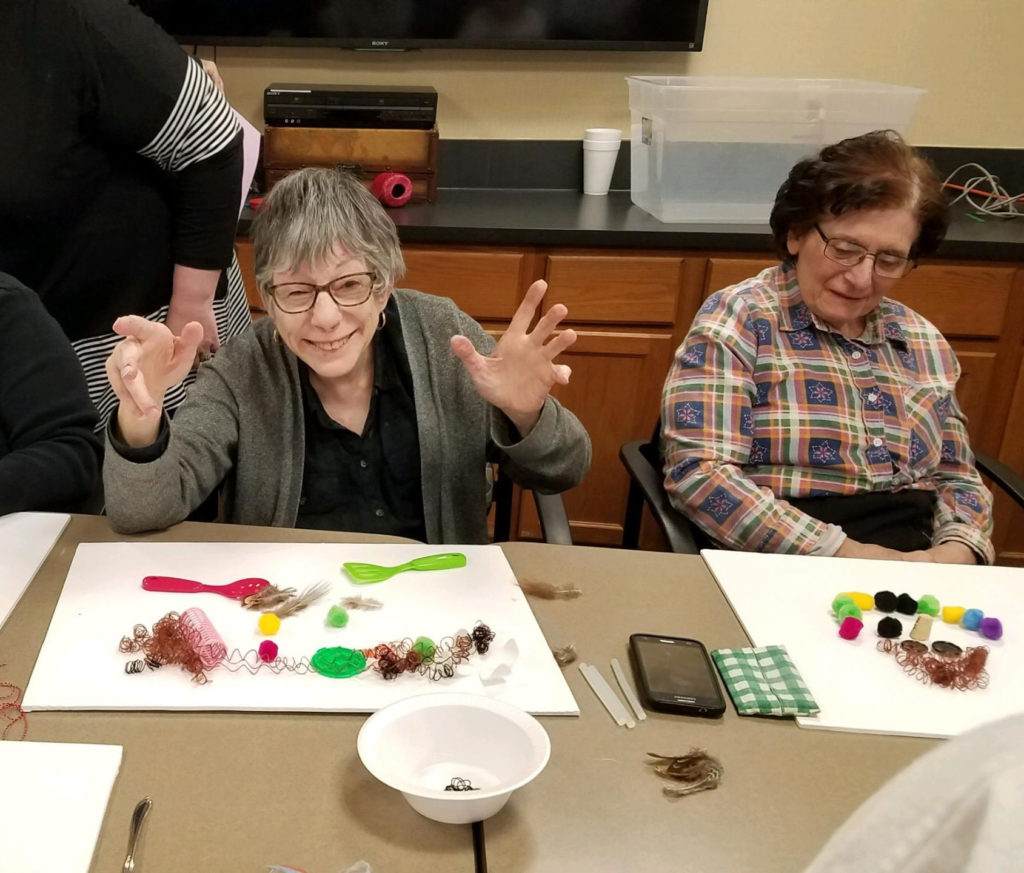
$15,000
Jewish Senior Life Foundation
to hire trained mental health professionals to manage the persistent challenges of chronic mental illness within JSL residential communities.
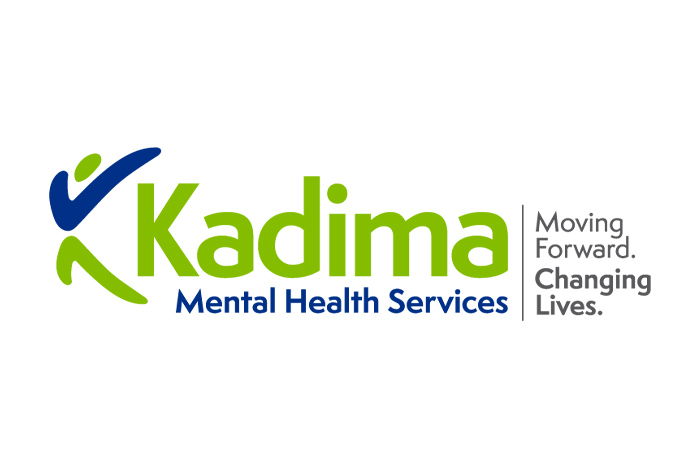
$15,000
Kadima
to support the Kadima Financial Needs Fund, which provides support to low- income individuals who struggle with severe, persistent mental illness.
Year 2 Grantmaking
Improving the health and welfare of individuals in our community who are experiencing economic hardship
Our focus area this year was the umbrella of physical health and safety and the prevention of hatred within our community. Throughout the year, we have been working to learn about the needs in our community for safety elements that may not be available to everyone. This is important to us because we have the opportunity to assist in tackling the hatred that surrounds our community. Our year has consisted of learning about grantmaking on an deeper level. Over the course of Teen Board Year 2, we have explored further learning of our previous year and have been able to have more intimate conversations about what we’re passionate about.
The Teen Board made three grants to organizations working to address this issue:
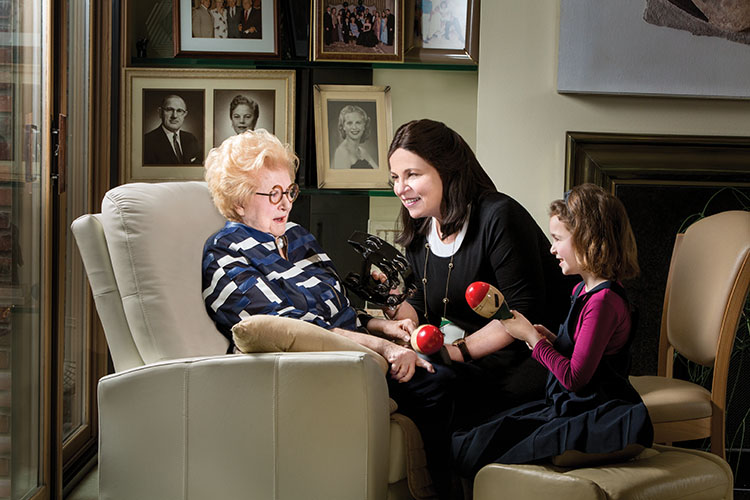
$15,000
Jewish Hospice & Chaplaincy Network
to improve physical and mental wellness among vulnerable terminally ill patients through an expanded pilot of at-home tai chi.
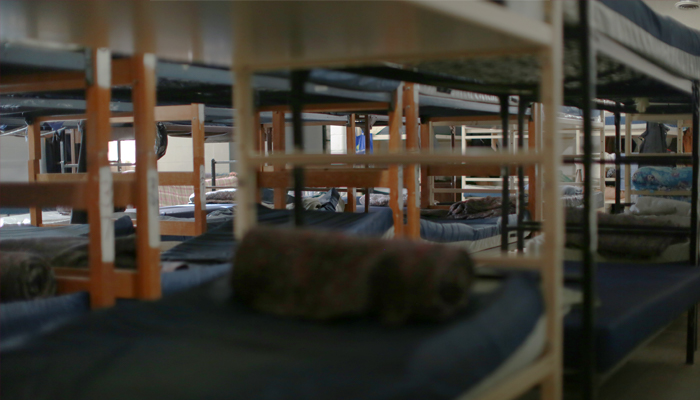
$4,000
Detroit Rescue Mission Ministries
to provide access to housing placement assistance for people who are homeless and severely mentally ill.

$15,000
South Oakland Shelter
to address gaps in serving families of homeless students in Oakland County to resolve their homelessness and increase their stability
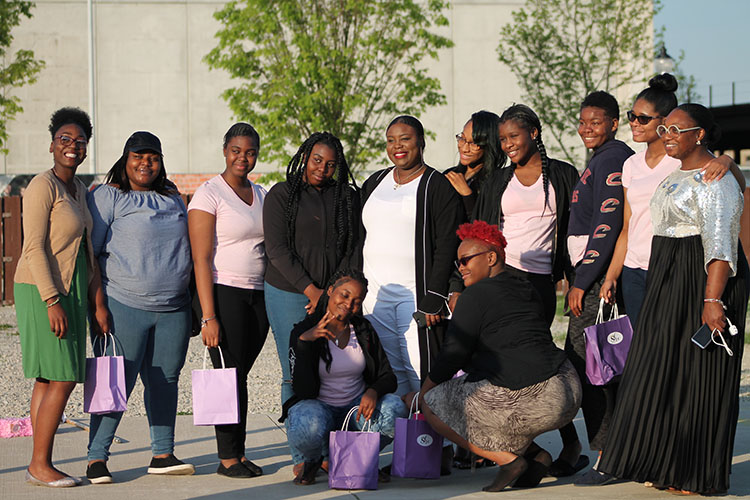
$8,500
Mariners’ Inn
to help young adults recover from homelessness, substance use disorders and co-occurring mental health problems.
Collaborative Grantmaking
For the first time, The Teen Board received a submission which applied equally to both Year 1 and Year 2 mission statements. This proposal provided a shared experience in the proposal review and site visit, offering additional opportunities for our participants to collaborate on community impact.
The Full 2019-2020 Teen Board is proud to have collectively awarded $12,500 to Common Ground to acquire and implement “Tess”, a psychological artificial intelligence chatbot to triage and respond to non-emergency texts and chats to Common Ground’s Resource and Crisis Helpline. Tess will greatly increase the number of crisis calls which can be addressed at one time.

$5000
Common Ground
Teen Board Year One

$7500
Common Ground
Teen Board Year Two
Six Years of Engaging Jewish Teens…
High Schools Represented
- Aim High School
- Akiva Hebrew Day School
- Berkley High School
- Birmingham Groves
- Bloomfield Hills High School
- Canton High School
- Cranbrook Kingswood
- Detroit Country Day School
- Eton Academy
- Farber Hebrew Day School
- Frankel Jewish Academy
- Groves High School
- International Academy
- North Farmington High School
- Northville High School
- Oakland Early College
- Rochester Adams High School
- Seaholm High School
- The Roeper School
- Walled Lake Central High School
- Walled Lake Northern High School
- Walled Lake Western High School
- West Bloomfield High School
Congregations Represented
- Adat Shalom Synagogue
- Aish Detroit
- Congregation Beth El (Windsor)
- Congregation Beth Shalom
- Congregation B’nai Moshe
- Congregation Or Chadash
- Congregation Shaarey Zedek
- Congregation Shir Tikvah Keter Torah
- Ohel Moed of Shomrey Emunah
- Or Chadash
- Partners in Torah
- Temple Emanu El
- Temple Israel
- Temple Shir Shalom
- The Birmingham Temple
- Unaffiliated
- Woodward Avenue Shul
- Young Israel of Oak Park
- Young Israel of Southfield
…and Impacting Our Community!
$450k
in grant dollars awarded
Focus Areas Addressed:
- Adolescent Mental Health
- Economic Hardship
- Family Communication
- Intimate Partner Violence
- Kindergarten Readiness & Early Childhood Health
- Older Adults
- Special Needs
- Substance Abuse
89
Grant Proposals Reviewed
75
Site Visits Conducted to
44
Diverse Metro Detroit Nonprofits
Alumni Engagement
through Internships and Learning Opportunities
- Generously funded by the Max M. and Marjorie S. Fisher Foundation
- 35 Interns placed in local non-profits for paid summer work experiences
- 15 Alumni have engaged in learning opportunities, conferences, or gap year programs to deepen their learning related to philanthropy, Jewish engagement, and/or social impact.
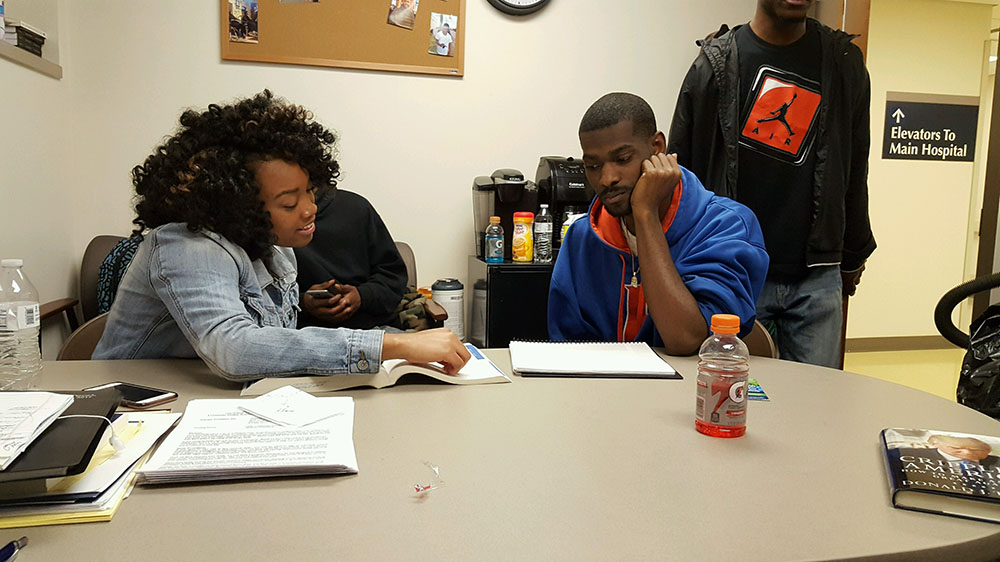
Financial Statements
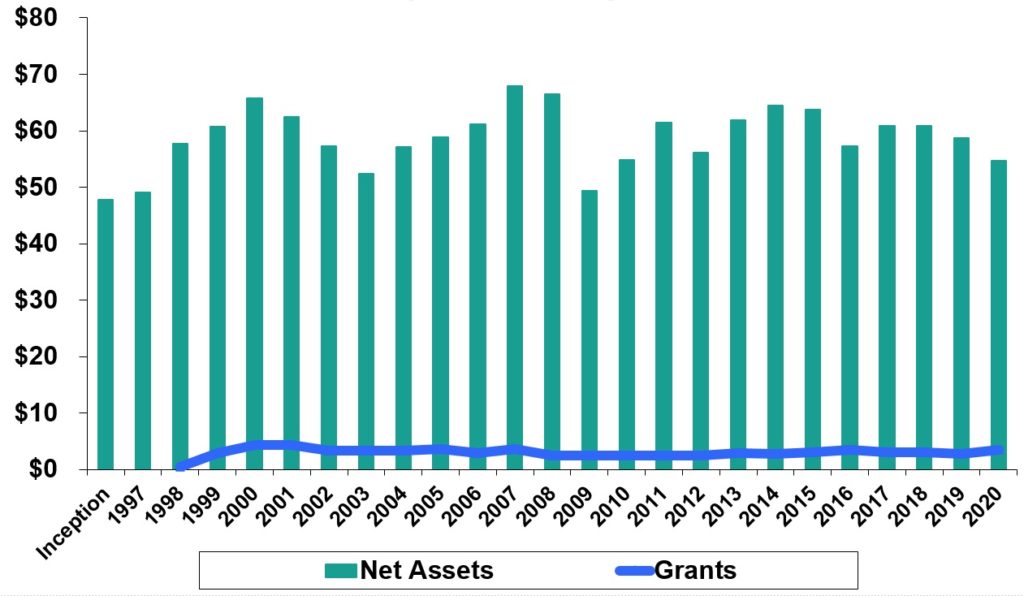
For the year ending May 31, 2020 The Jewish Fund had an investment loss of (0.4%) and the investment’s asset value was $55.2 million. The table above summarizes The Fund’s historic asset balances since its inception in 1997. During the 2020 fiscal year, The Jewish Fund awarded over $3.5 million in grants, representing the one-year payments of multi-year and single-year grants. Since inception, The Fund has awarded nearly $70 million in grants.
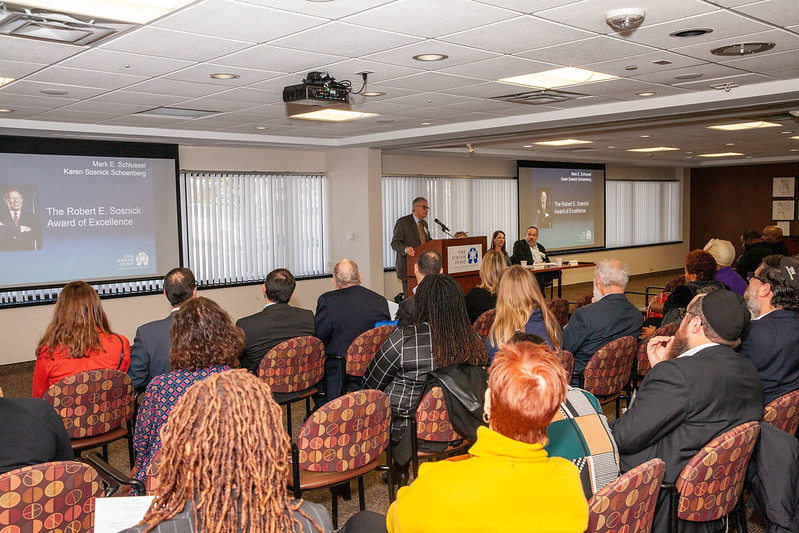
Board of Directors
The Jewish Fund
- Nancy Grosfeld
- Chair
- Michael Eizelman
- Vice Chair
- Michael Berger
- Roselyn Komisar Blanck
- Penny Blumenstein*
- Jeffrey M. Davidson
- Jeffrey D. Forman, M.D. זצ״ל
- Jennifer Friedman, Ph.D.
- Lynda Giles, Ph.D.
- Renee Handelsman, M.D.
- Laura A. Hughes
- Alan Jay Kaufman
- Sherri L. Ketai
- Ronald A. Klein
- Mark L. Kowalsky
- Anessa Kramer
- Richard Krugel, M.D.*
- Lawrence Lax
- Beverly Liss
- Ilana Liss
- Rabbi Harold S. Loss
- Michael W. Maddin*
- Robert H. Naftaly*
- Marcie Hermelin Orley
- Susie Pappas
- Marta Rosenthal
- Susie Schechter
- Jeffrey B. Schlussel
- Mark E. Schlussel*
- Karen Sosnick Schoenberg*
- Alexis J. Schostak
- Leah Trosch
- Michael R. Tyson
- Hon. Helene White
- Lawrence A. Wolfe
- Dorothy Benyas
- Secretary / Treasurer
- Robert Sosnick זצ״ל
- Mark E. Schlussel
- Co-Founding Chairs
Staff of the Jewish Fund
- Margo Pernick
- Executive Director
- Laura Charnas
- Teen Board Coordinator
- Lauren Rouff
- Teen Board Facilitator: Year 2
- Kristin Moskovitz
- Grants Management Coordinator
Teen Board
Year One
- Max Adamczyk
- Adina Alterman
- Victor Berger
- Josh Bertman
- Alison Chapnick
- Carly Cohen
- Morgan Cook
- Noah Eaton
- Logan Edelheit
- Max Edelheit
- Shira Ellis
- Noah Goldberg
- Julia Klein
- Caleb Kleinfeldt
- Marlee Kroll
- Adam Krugel
- Cami Krugel
- Mia Lewis
- Haley Lipman
- Cara Lopatin
- Alexis Morton
- Jonah Mougoue
- Hannah Rashty
- Tali Rubenstein
- Lindsay Schlussel
- Cooper Schoenberg
- Joshua Schreiber
- Anna Weinbaum
- Macy West
Year Two
- Emily Abrams
- Jane Borenstein
- Chase Brodsky
- Elisha Cooper
- Matthew Doctoroff
- Abby Foltyn
- Lily Foltyn
- Evan Israel
- Elliot Kaftan
- Darby Krugel
- Jesse Krugel
- Max Morganroth
- Haylie Polakoff
- Barry Sabin
- Joseph Schwartz
- Gabriel Singer
- Robert Victor
- Ilan Weiss
- Sam Wittenberg
- Isabel Zaltz
- Zoe Zaltz
Teen Board Leadership Council Members
- Elijah Appelman
- Maddie Feinstein
- Jessica Goldberg
- Nia Kepes
- Leah Segal
- Benny Shaevsky
